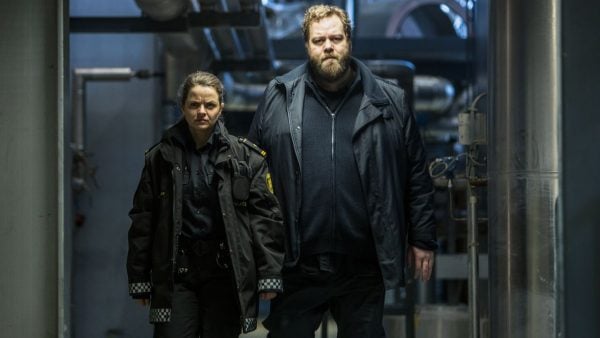70 Thrilling TV Shows to Watch Right Now
If you’re craving heart-pounding suspense, nail-biting twists, and relentless excitement, look no further. Embark on a rollercoaster of emotions and delve into the adrenaline-fueled worlds that await. Buckle up, dim the lights, and prepare for a binge-worthy journey that will leave you exhilarated and constantly guessing what comes next. These shows are an invitation to experience the thrill like never before.
Jump to the top 10:
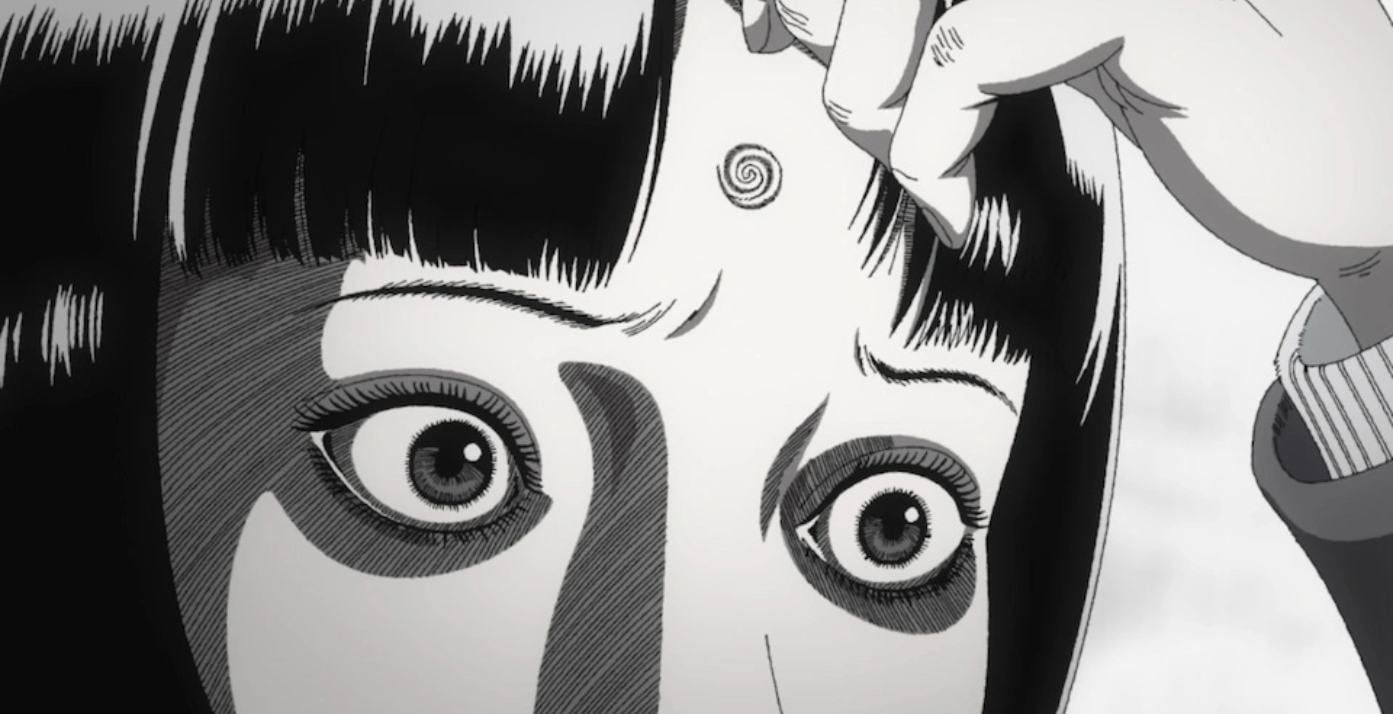
The last time Junji Ito’s work was animated by a Western studio, it wasn’t terrible, but it didn’t match up to the terror of his original stories. Nevertheless, animators persisted, and Production I.G. and Adult Swim’s attempt is a mini-series adaptation of the three volume manga Uzumaki. Uzumaki: Spiral Into Horror is a peculiar horror series, one that may not be downright terrifying with its small-town tale, but it’s much scarier than other Western adaptations with its faithfulness to Ito’s black-and-white intricate line work. There’s probably no other way to depict this particular story– after all, it’s all about spirals– but director Hiroshi Nagahama adds dizzying movement and composer Colin Stetson adds eerie extended techniques that match the terror Kirie and Shuichi share as they struggle against the neverending spiral spell that takes over their town.
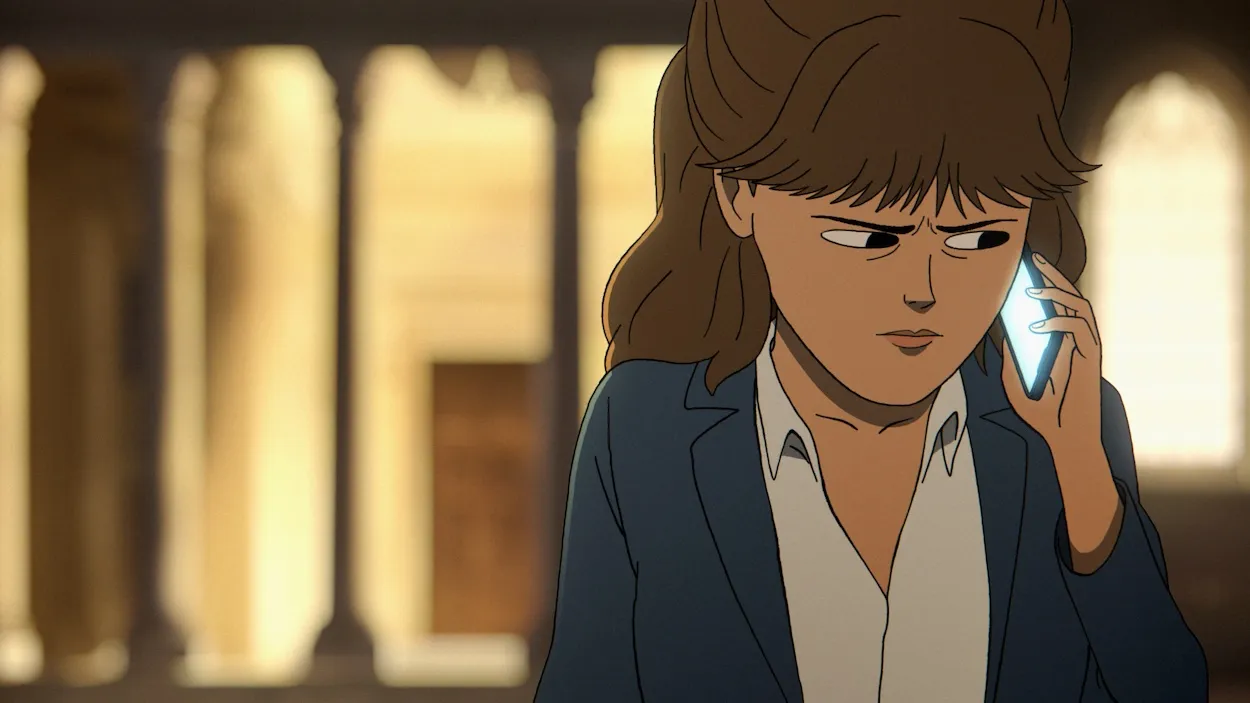
From the creators of Scavengers Reign and Veep comes Common Side Effects, a show that’s at once quirkily funny and chillingly relevant. It’s about Marshall, a fungi expert who finds a mushroom that heals all wounds and illnesses. As a result, he becomes a target of big pharma, insurance companies, and even government agencies, all of whom, according to Marshall, insist on keeping the mushroom from the public so they can continue to profit off people’s sickness. It sounds silly at first, like the kind of fearmongering, fact-less posts you roll your eyes at when they hit your timeline. And the show is silly, but in a different way. It has the absurdity and quirks that make adult cartoons so delightful, yes, but as a condemnation of capitalist exploitation and greed? It can’t be any sharper, especially now that medical costs are skyrocketing and the public are starting to fight back.
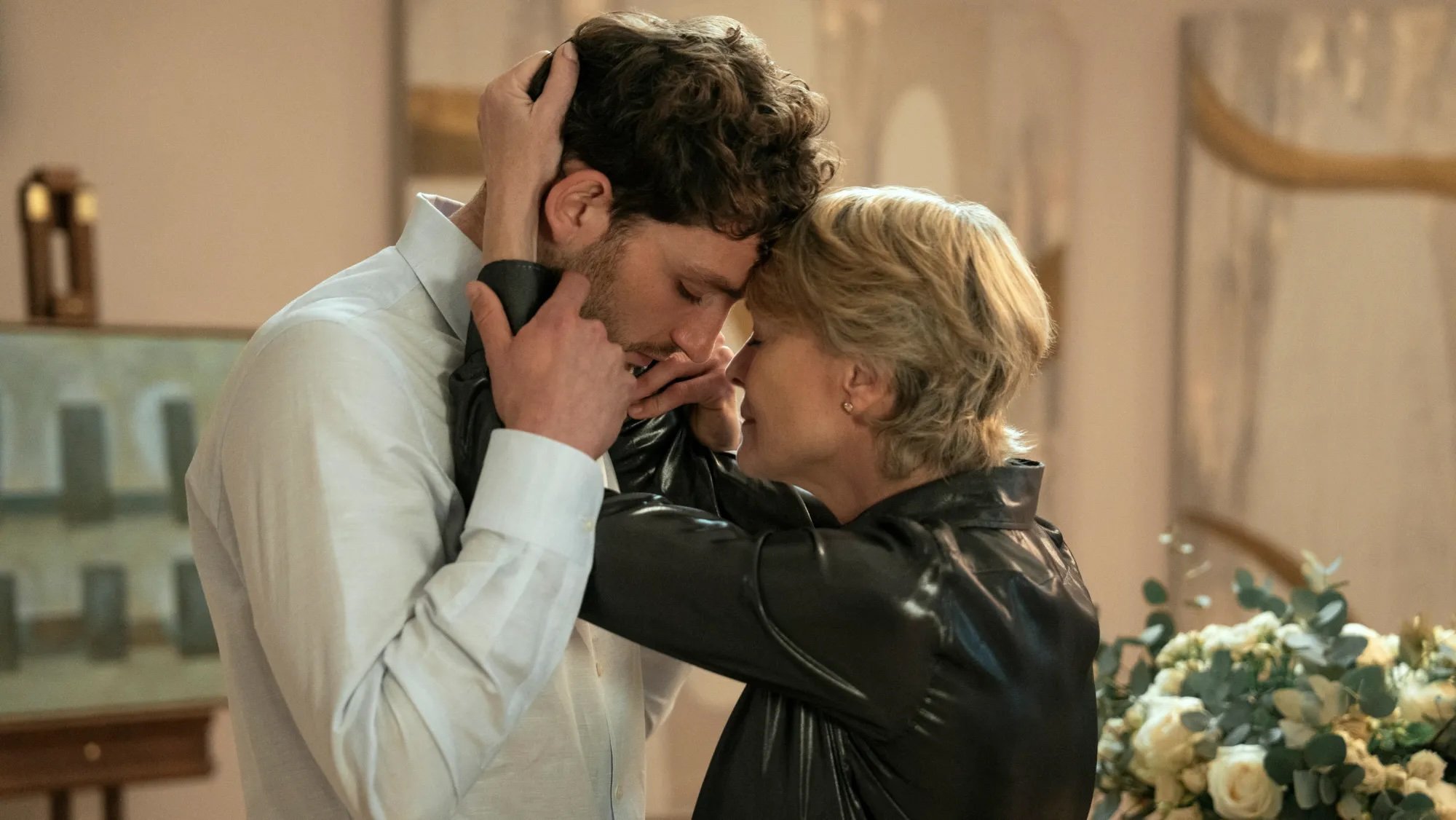
The Girlfriend, which is Meet the Parents by way of Death Becomes Her and Parasite, is a silly thriller about two women fighting to the death over one man. Cherry, an ambitious working-class real-estate agent, is the girlfriend, while Laura, a wealthy art curator, is the overly possessive mother. Their rivalry is amusing at first–a swirl of misunderstanding, bad impressions, and prejudice has them at each other’s throats the instant they meet. But it very quickly escalates into something sinister and dangerous. Still, it never takes itself too seriously and pretends to be anything other than a highly entertaining soap drama, making it all the more entertaining to watch.
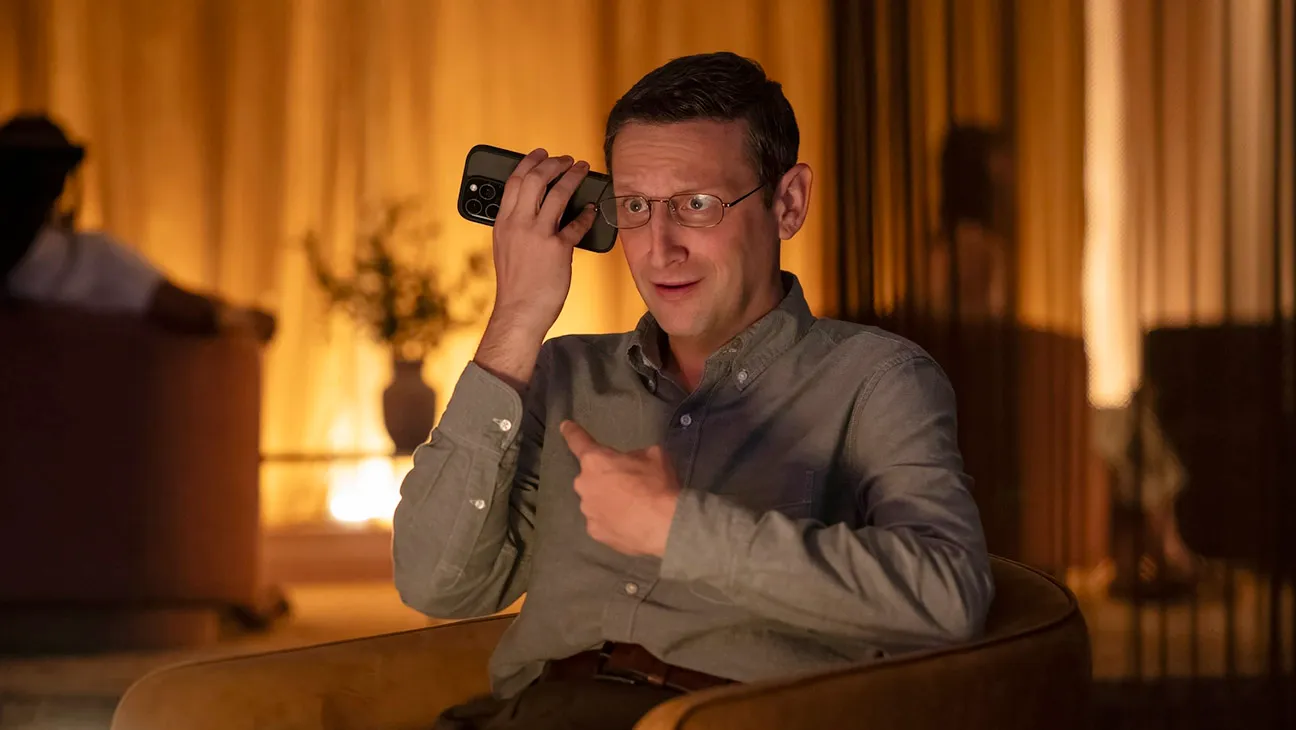
After being promoted as a project lead, Ron falls down due to his office chair breaking. At first he tries to joke it off, but the work piles on, the expectations get higher, and all he can do is call The Chair Company. It leads him to an unexpected conspiracy that could be a combination of normal corporate bureaucracy, unfortunate coincidence, and stress-induced hallucinations, but the resulting journey is hilarious, cleverly combining Tim Robinson’s cringe comedic talents with a unique brand of thrill. The Chair Company is entirely unexpected, and that is why it might be one of the most original series airing right now.
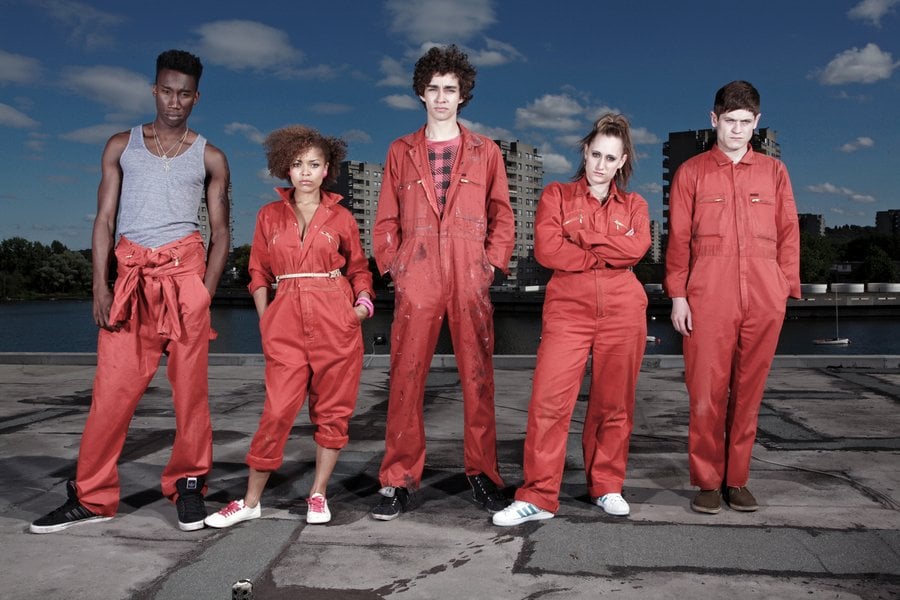
Five delinquents are stuck together in juvenile detention. The kids are bored, and they are all doing their best to be as rude as possible to each other and their supervisor. One afternoon there’s a big storm and they all get struck by lightening. The next day they wake up with the realization that they are not the same people as they were the day before. Each episode follows the perspective from a different character. This is not your average superhero gang – nor are their powers particularly desirable. In essence the show is about a group of “misfits” trying to make connections and fit in. It’s at times heart warming, at others it will make you cringe. There is some seriously good acting between Iwan Rheon (Game of Thrones) and Antonia Thomas (Love Sick). The plot is very gripping so it will be hard to not watch the whole first season (6 Episodes) in one afternoon.

Based on a manga (and considered a better adaptation than its anime counterpart), Erased follows a man who can go back in time. Travel, mystery, and human drama blend together well as he tries to prevent a series of tragic events from his childhood. With its well-crafted plot and moments of heart-wrenching tension, the show sustains itself well without knowing the original material. The intricate web of mysteries and the race against time create a sense of urgency even as it manages to stick to the familiar anime time slot (~25 mins per episode). A must for thriller fans looking for a well-plotted, self-contained story.
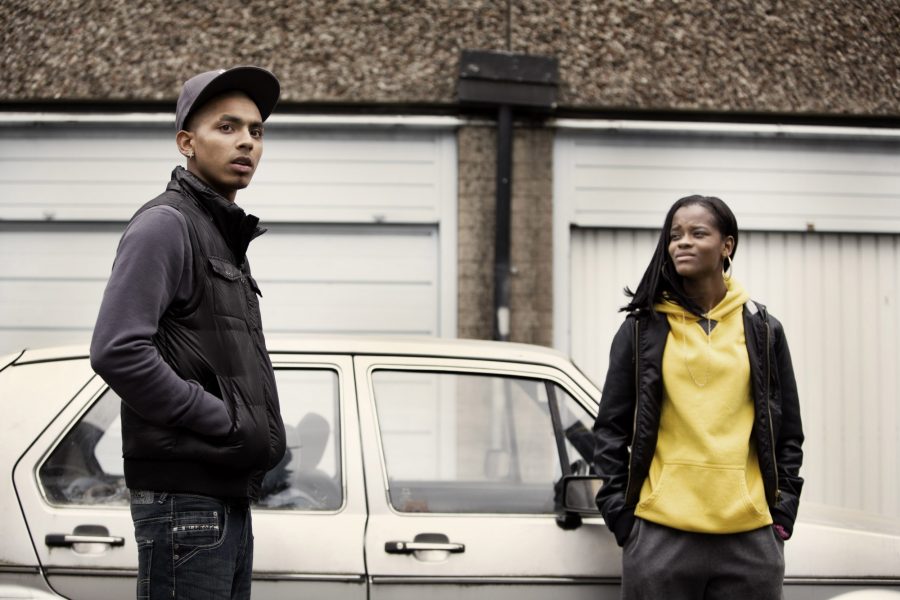
The first season of this abrasive crime drama has four episodes, expect to watch them all in one take. The second season became even bigger than the first after being endorsed by none other than Drake, who pushed for it to go on after it was cancelled. Set amidst the drug-dealing, cut-throat gangs of Hackney, East London, and Jamaica, Top Boy revolves around the two drug lords Sully and Dushane, played by Kane Robinson aka grime rapper Kano and Ashley Walters. This is not a cliched, poorly acted gangster flick though, but a vividly shot, intricately written, and authentic drama with amazing characters. Striving for a certain realism and authenticity, it is also unsettingly violent. But in its realism, it trusts mature viewers to see things like they are and to live through the tough decisions people in underserved communities have to make every day. Think The Wire with a gritty UK vibe. If that appeals to you, Top Boy is for you!
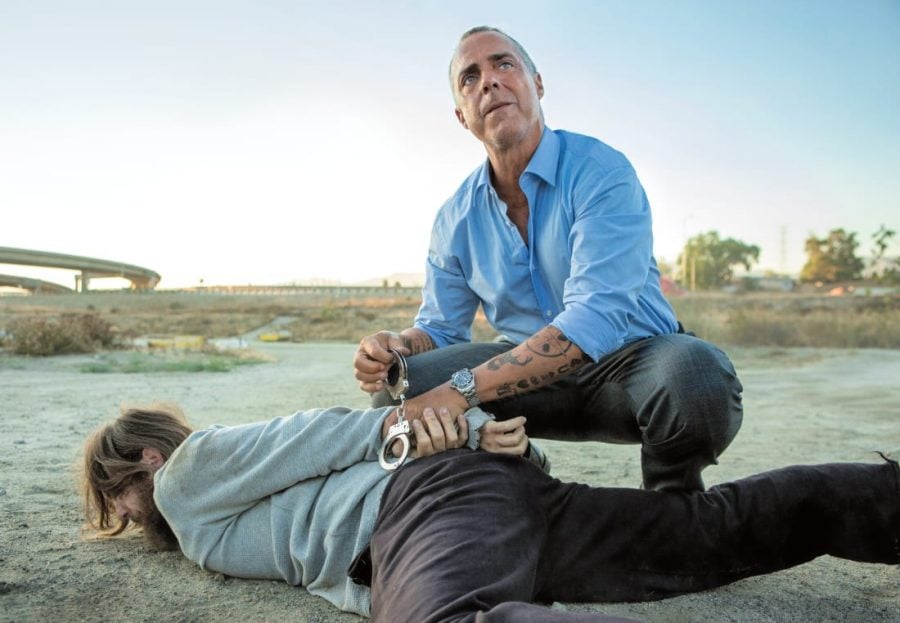
Bosch returned recently for a fifth season, with a sixth one confirmed. It’s a sleeper hit that you may not have heard of, but with time should get the coverage it deserves. Titus Welliver (Lost, Sons of Anarchy, Argo) plays an L.A.P.D. homicide detective who is on trial for using questionable methods during a fatal shootout. At the same time, he is trying to solve an open murder case. Bosch is carried by almost entirely by Welliver, who delivers such a good multi-layered performance that it’s hard to think anyone else could have played this character.
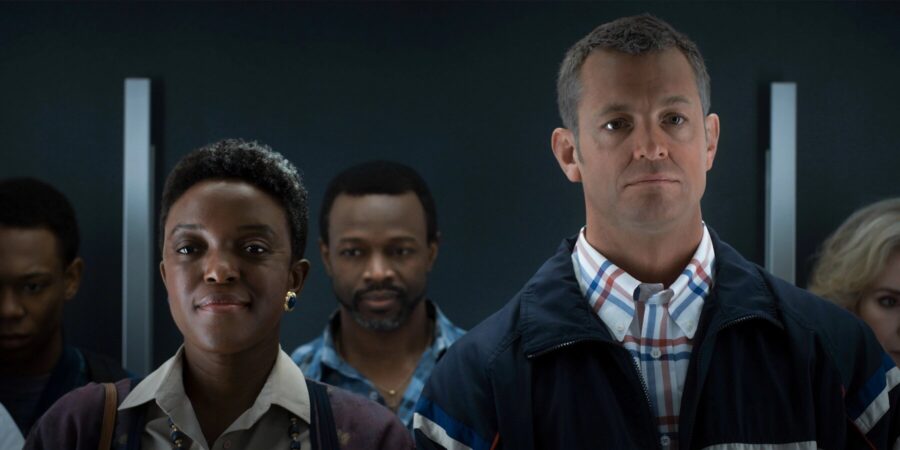
What if the 1960s space race never ended? For All Mankind imagines such a world; here, Russia’s cosmonauts arrive on the moon first, the galaxy holds resources beyond belief, and global wars have expanded in stakes and scale. More than just the final frontier, outer space is now the focal point of warring nations hungry to capitalize and claim new assets.
For All Mankind’s out-of-this-world premise alone make it a thrilling watch, but you’ll be glad to know that the show also feels intimate and affecting thanks to its fully fleshed-out characters. If you’re looking for an epic but grounded story to lose yourself in, this is it.
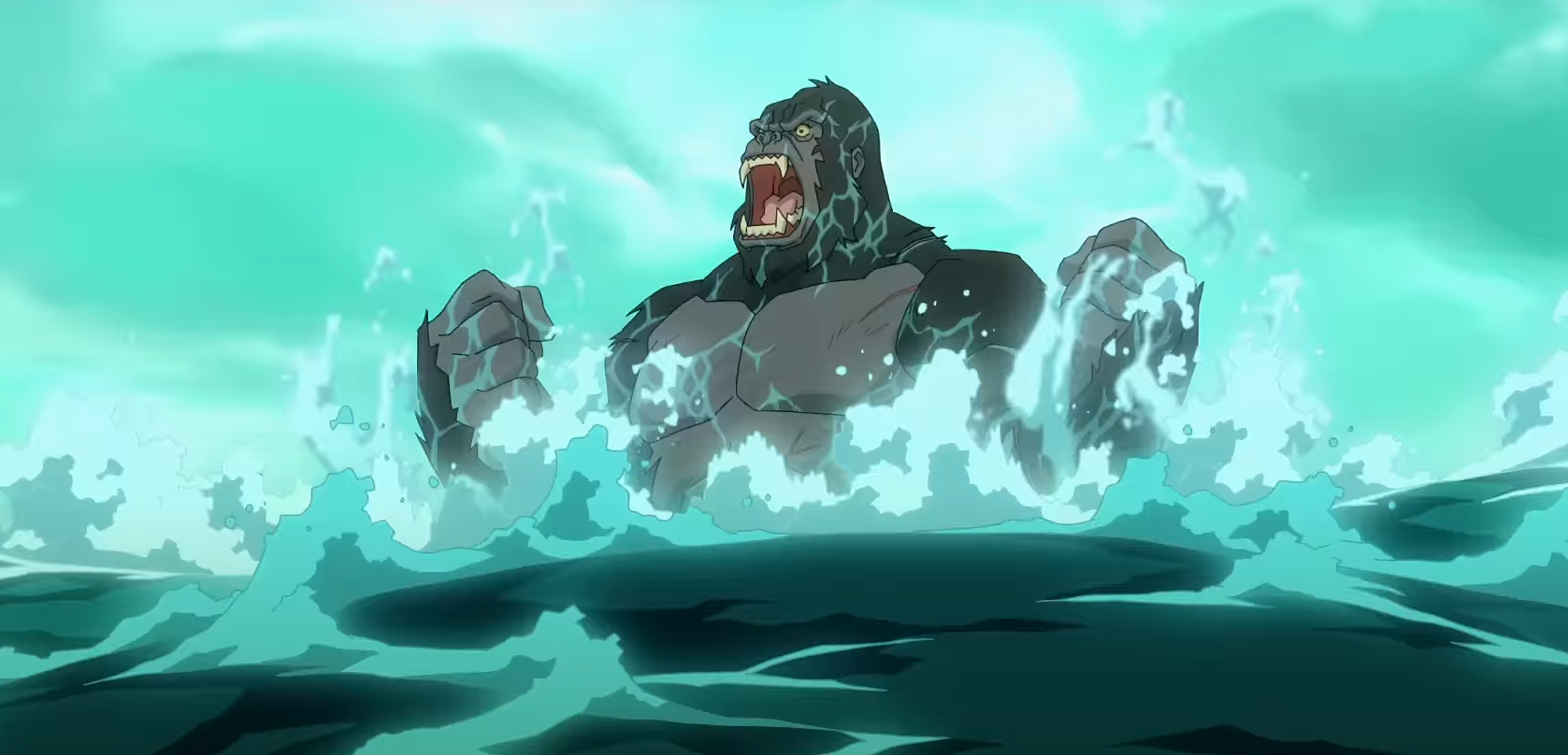
Set in the Monsterverse—the same shared universe that King Kong, Godzilla, and their respective films inhabit—Skull Island follows a group of shipwrecked travelers who find themselves stranded on the mysterious titular island, which they soon find out is home to a variety of prehistoric creatures, including the mighty Kong.
Skull Island, the series, delivers wholesome relationships and touching character growth in the face of imminent danger, while also offering exciting action scenes, eye-popping visuals, and amusing jokes that are well-served by voice acting. It’s an easy, fun watch that is sure to appeal to fans of the Monsterverse, as well as fans of animated adventure series.
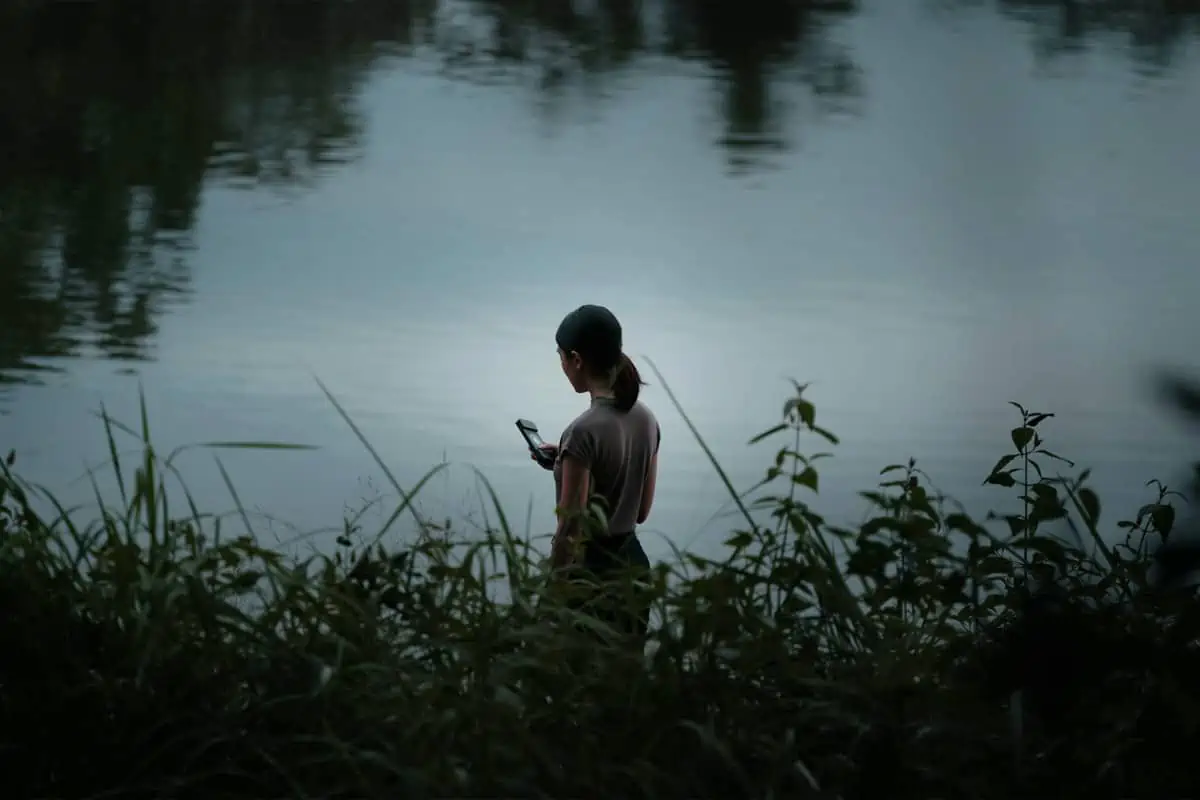
Centered around a phone with the power to make people disappear, Delete utilizes an intriguing supernatural element to create a steady mystery that thrives on moral dilemmas. With shifting perspectives and a non-linear narrative, it excels at building context and character motivation. What starts as an exposed affair becomes an exploration of the depths of human desires. The series has a strong start, setting a pace that hooks with melodrama and keeps eyes glued with its twists. Whether it’s distrust in relationships or dependency on technology, there isn’t a dull moment as the phones pass from hand to hand, and the stakes are risen by questionable intentions.
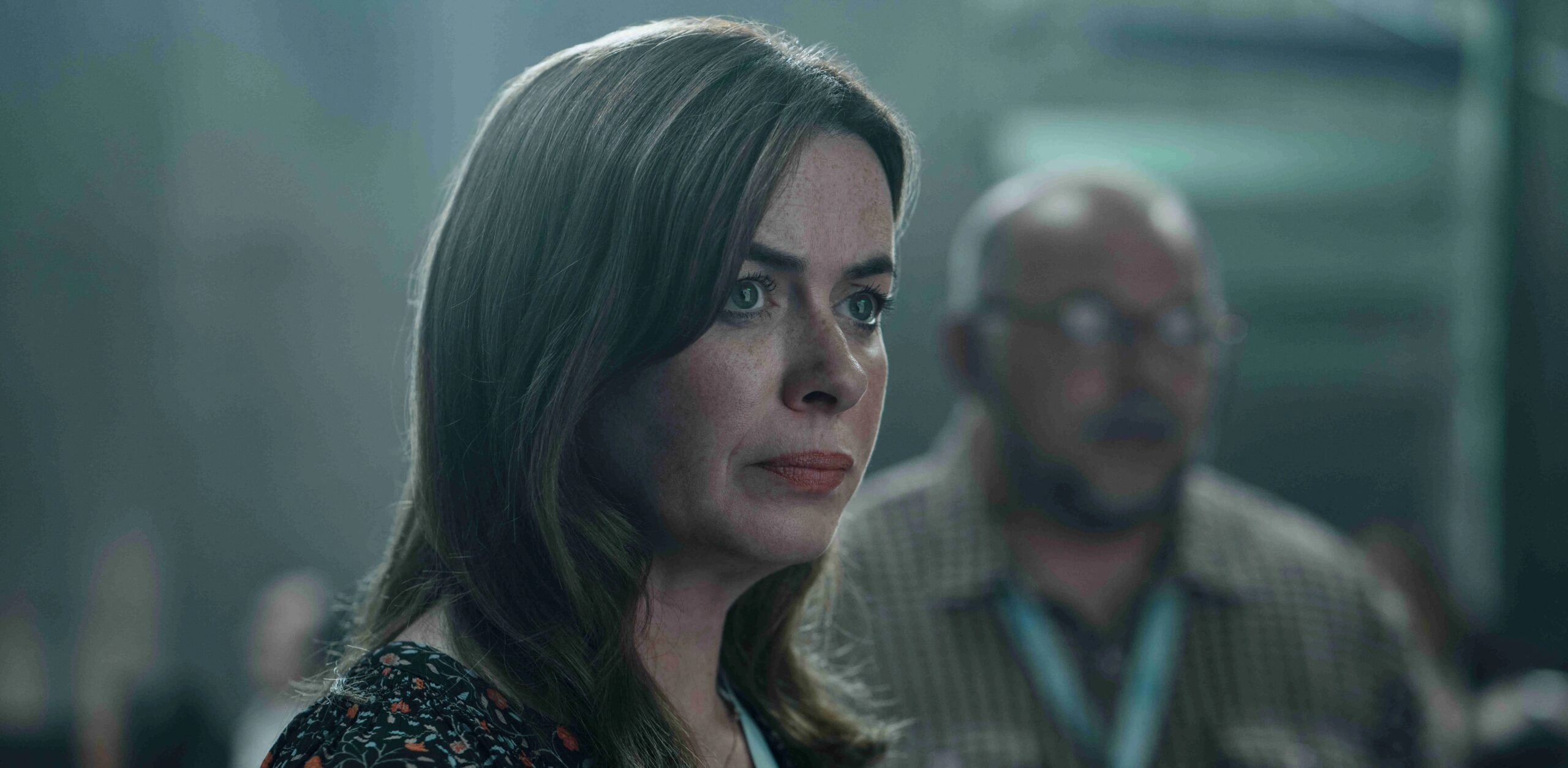
The show’s premise is plain, but it’s also endlessly, edge-of-your-seat gripping. It’s steady and unhurried but never boring, and each episode, which represents an hour on the seven-hour flight, gives you a sliver of hope for the passengers, especially since they have pro-negotiator Sam Nelson (Idris Elba) on their side. Or do they? The show has fun playing with Sam as the anti-hero, but his heart is too big and golden to achieve that complexity. It also doesn’t bother to paint the hijackers as anything other than terrorists (at least not in the first few episodes screened for review). Instead, the show narrowly chases that mid-flight suspense, and it works. It successfully builds up to it with small but revealing moments.
At the back of all the hubbub, there is also a running joke about what happens when you get stuck with the worst people you know. The passengers are characters you may be familiar with—the family with loud babies, the nosy seatmate forcing a chat, the lowkey racist eyeing everyone who doesn’t look like him—and it gets doubly entertaining to see them collaborate when they otherwise won’t.
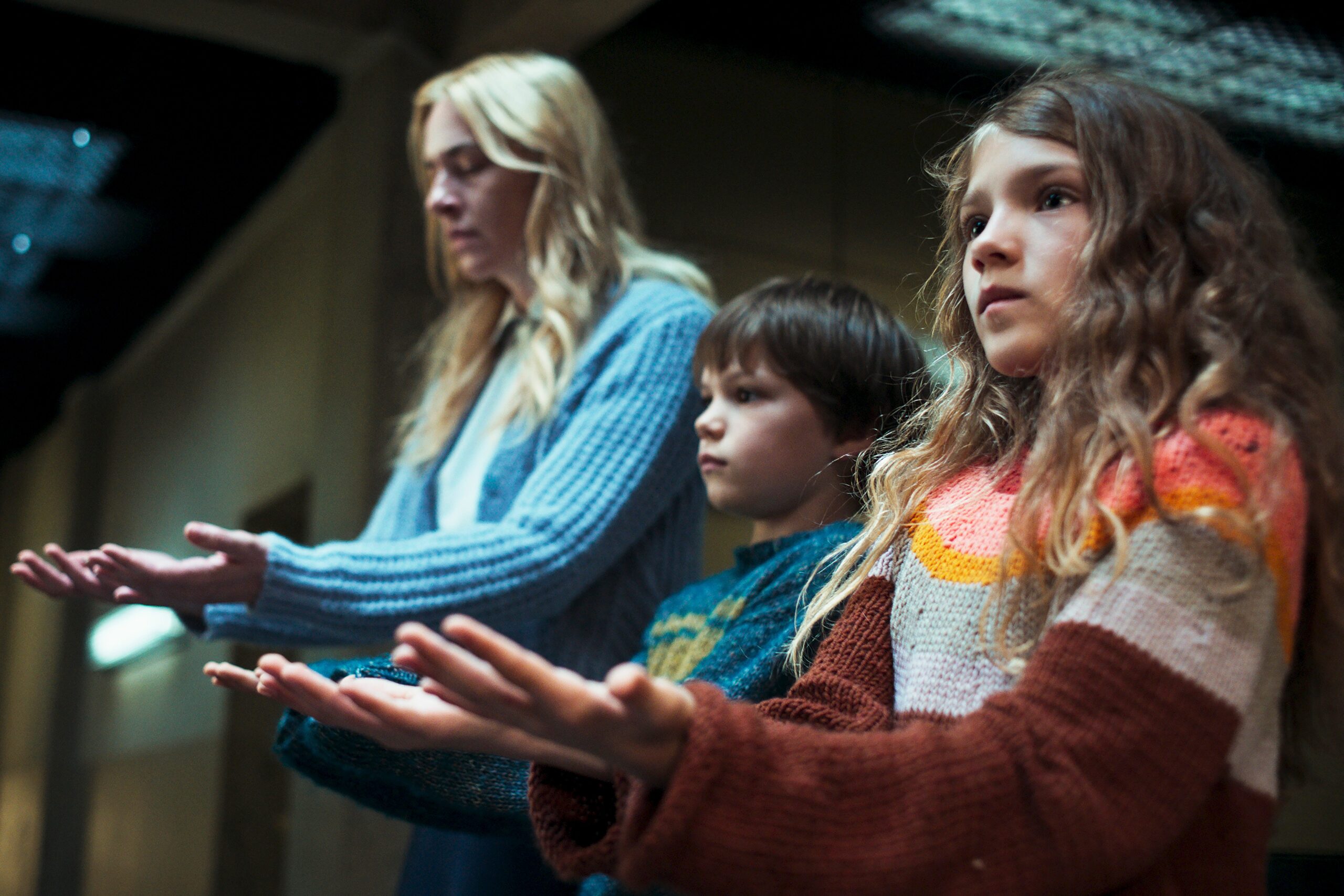
Dear Child may be tackling difficult themes, including sexual violence and domestic abuse, but it’s not hard to watch at all. As a mystery, it’s well-told and gripping, with clues and cliffhangers appearing at just the right moment, and as a drama it’s expertly paced and brilliantly acted, with child actress Naila Schuberth, who plays Hannah, and Kim Riedle, who plays Jasmin, easily owning their scenes. Unlike other stories that decide to take on these delicate themes, it’s not gratuitous or exploitative either. Instead, it knows when to hold back and when to unleash the horrific details of its crimes. The sympathy it shows the victims is present but restrained, at least until the last few moments of the series. By then, the series, with full force, takes the victim narrative and excellently turns it against its head.
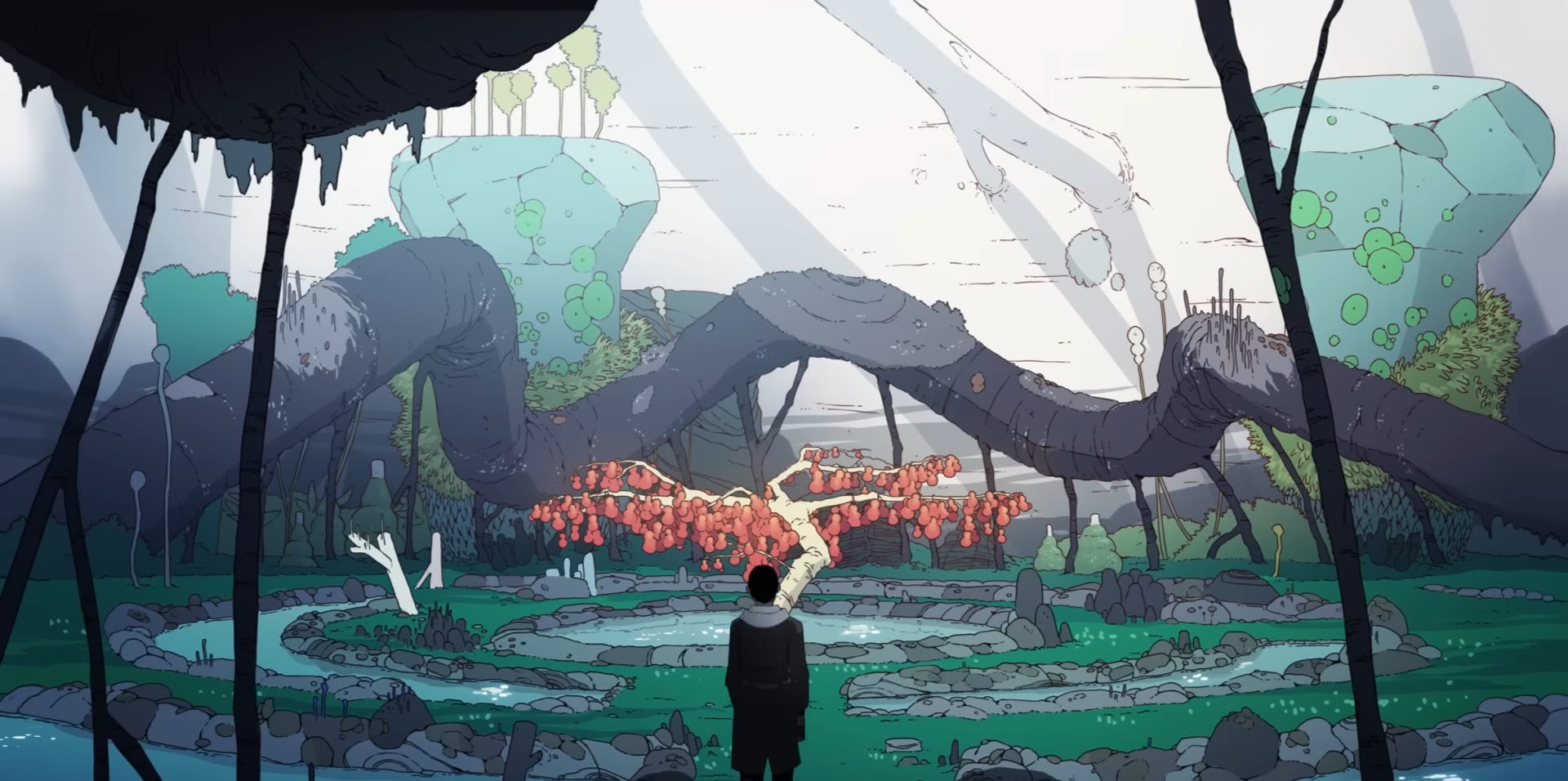
“World-building” doesn’t quite capture what Scavengers Reign does — the sheer imagination on display in just the first three episodes of this 12-part adult animation sci-fi could fill multiple universes. From the get-go, we’re immersed in a truly strange new world, one in which panda-like creatures with telepathic abilities control humans, fungi merge with motherboards, and plant-animal hybrids crackle with electricity. All this trippiness is rendered in a 2D animation style that appropriately draws on the fantastical art of Moebius (who in turn influenced Studio Ghibli).
Flashbacks and hallucinations gradually unravel the mystery of just how the crew of the Demeter and their robot assistant Levi (Alia Shawkat) ended up here — a grounding plot thread that keeps things from totally spinning out into mind-bendingly surreal territory. Not just an exercise in stretching creativity in bold new directions, then, but a gripping mystery laying bare the terrifying limitlessness of the cosmos.
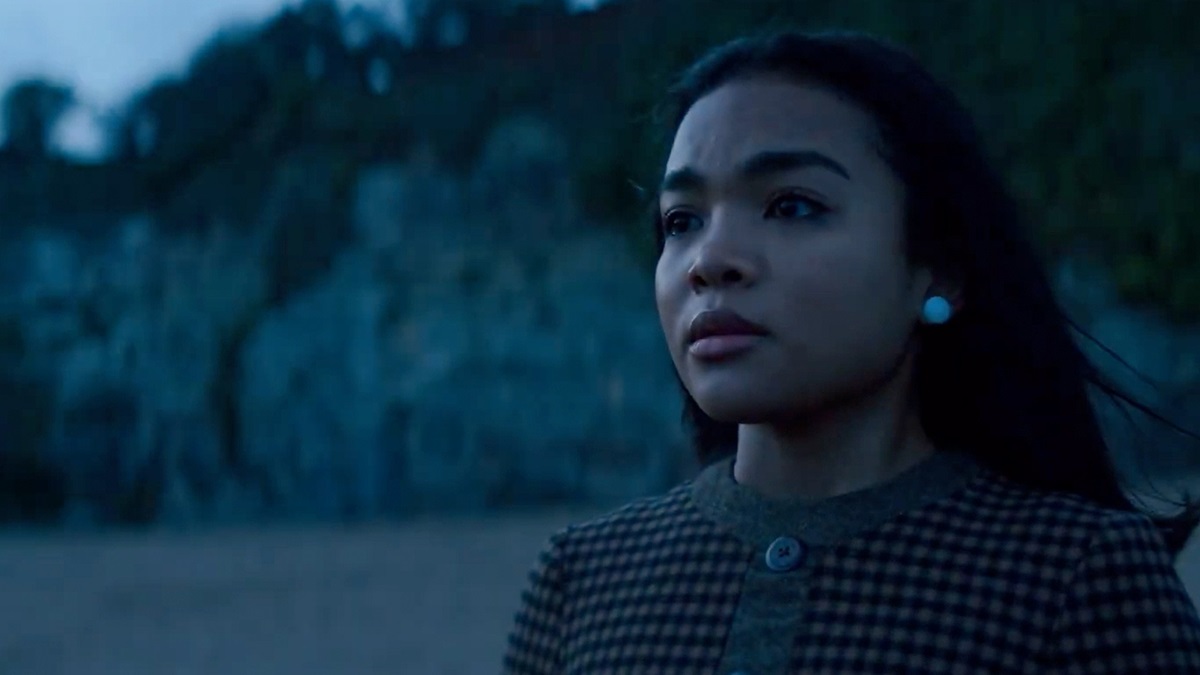
We don’t really know our parents the same way they know about us. Black Cake recognizes this, and takes that discrepancy to create a compelling mystery, expanding on that hidden world with themes of generational trauma, intercultural dynamics, and lost heritage. With the show doing justice to the book’s moments, the mystery of Eleanor Bennett’s former life is already compelling in and of itself, but it’s made even more so as her children try to make sense of it, changing their strained dynamic. It’s layered, well-written and deeply personal. It’s a unique story that has to be told.

Intricately constructed and unbearably suspenseful from beginning to end, the first season of The Promised Neverland is a masterclass in using the episodic structure of TV to maximize the effect of a mystery-driven thriller. By placing us firmly within the perspective of its child protagonists (who are, to be fair, incredibly smart and determined), every step towards freedom still feels like a shot in the dark, and every setback becomes increasingly more devastating. Even as the season hurtles towards its conclusion, it never becomes clear how much its characters will succeed, if at all. Intelligent editing and animation that goes from ominous to fully grotesque ensures that something always feels off or too good to be true, no matter what.
And it says a lot about the sheer quality of the first season that it’s still worth recommending despite a truly awful, rushed second season, which ignores its own themes and resorts to lazy animation just to get through the story faster. Viewed as a two-season series, The Promised Neverland can’t help but look disappointing, squandering an exhilarating first half with developments that lead nowhere. But even on its own, season one stands tall as a stunning achievement in anime—a self-contained story of selflessness and hope in the face of dehumanization and despair.
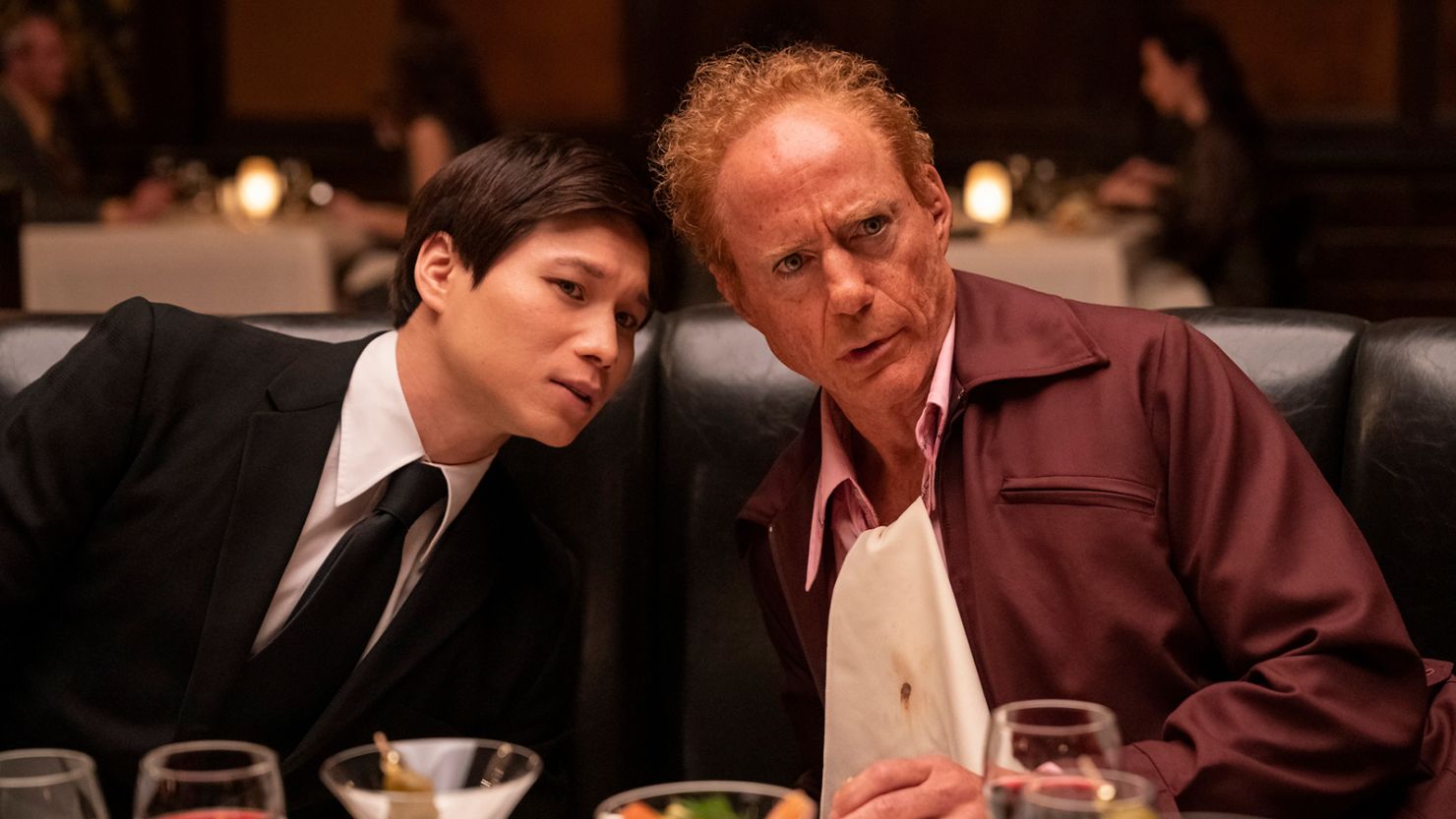
After the only war the Americans have lost, American post-Vietnam war portrayals tend to lean as patriotic revenge fantasies or romanticized disillusionment, but rarely do they portray the people caught in between. HBO’s The Sympathizer is an adaptation of the Pulitzer winning novel of the same name, and while it’s mainly an American production, Park Chan-wook and Robert Downey Jr.’s collaboration sticks to the Captain’s perspective, as the unnamed mole protagonist writes his confession years after from a jail in Vietnam. Chan-wook excellently mirrors his approach to Viet Thanh Nguyen’s agile storytelling, shifting time periods and languages the same way the Captain shifts perspectives, though Nguyen’s dry humor sometimes wavers when translated to the screen. Still, it’s certainly a well-crafted, ambitious depiction coming from a unique perspective.
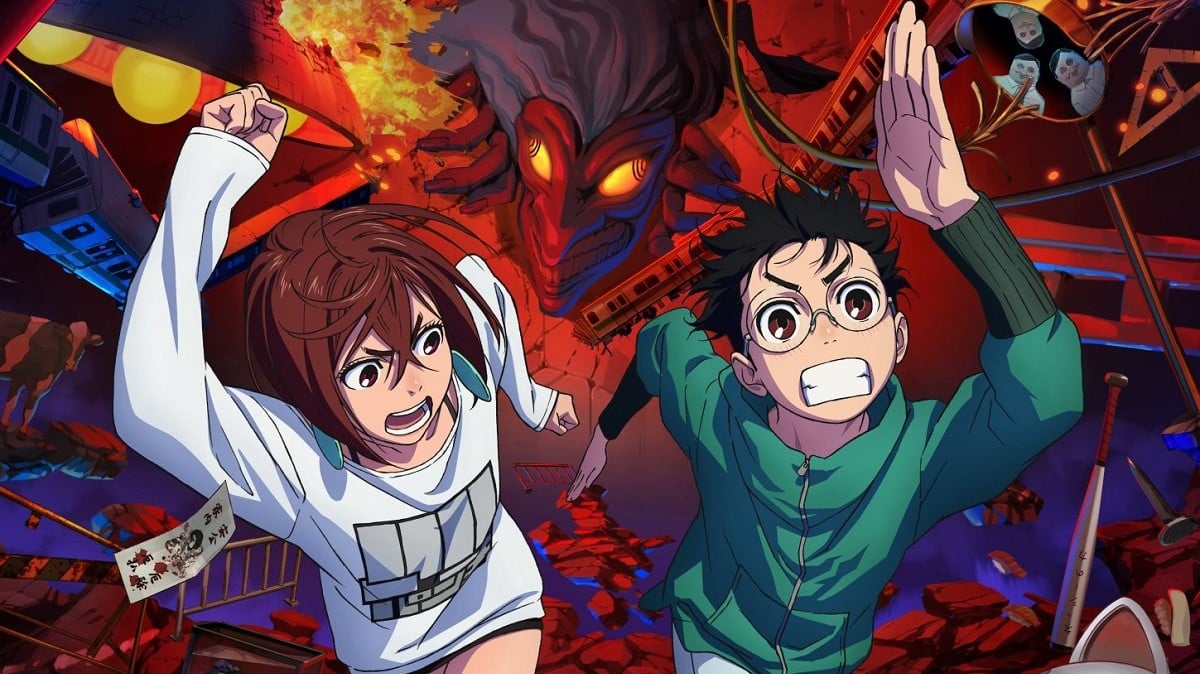
During adolescence, teenagers get to learn and discover themselves and the world, but for most people, this means going through puberty, maybe taking up a sport or hobby, and not the occult vs alien shenanigans of DAN DA DAN. The science fiction-fantasy mix is unhinged and chaotic, throwing Momo and Ken directly into the worlds they didn’t believe in, and with each crazy encounter, they gain insane powers that are rendered into (literally) out-of-this-world, kaleidoscopic animation. But it’s their comedic dynamic that makes the show work, as each absurd situation pushes them to share what makes them vulnerable and challenge each other on their beliefs. DAN DA DAN is spectacularly unpredictable, and is a standout from 2024’s anime fall lineup.

You’ll have to trust us on this: it’s best to know absolutely nothing about this show before you start watching. There’s a reason all the promos you see on it say near to nothing about it, and it’s a reason you’ll be thankful for at the end of the first episode. What we will say is that Paradise is a refreshing take on political thrillers, and the cast–mainly Sterling K. Brown and Julianne Nicholson–are compelling in their flexibility, confidence, and vulnerability. The show is genre-defying, but what drives it above all else is mystery. Creator Dan Fogelman (This Is Us) might have slightly gone haywire with the flashbacks, but he’s careful not to give anything away too quickly. Instead, we’re left with mysterious puzzle pieces, unpredictably solved by Brown’s character.
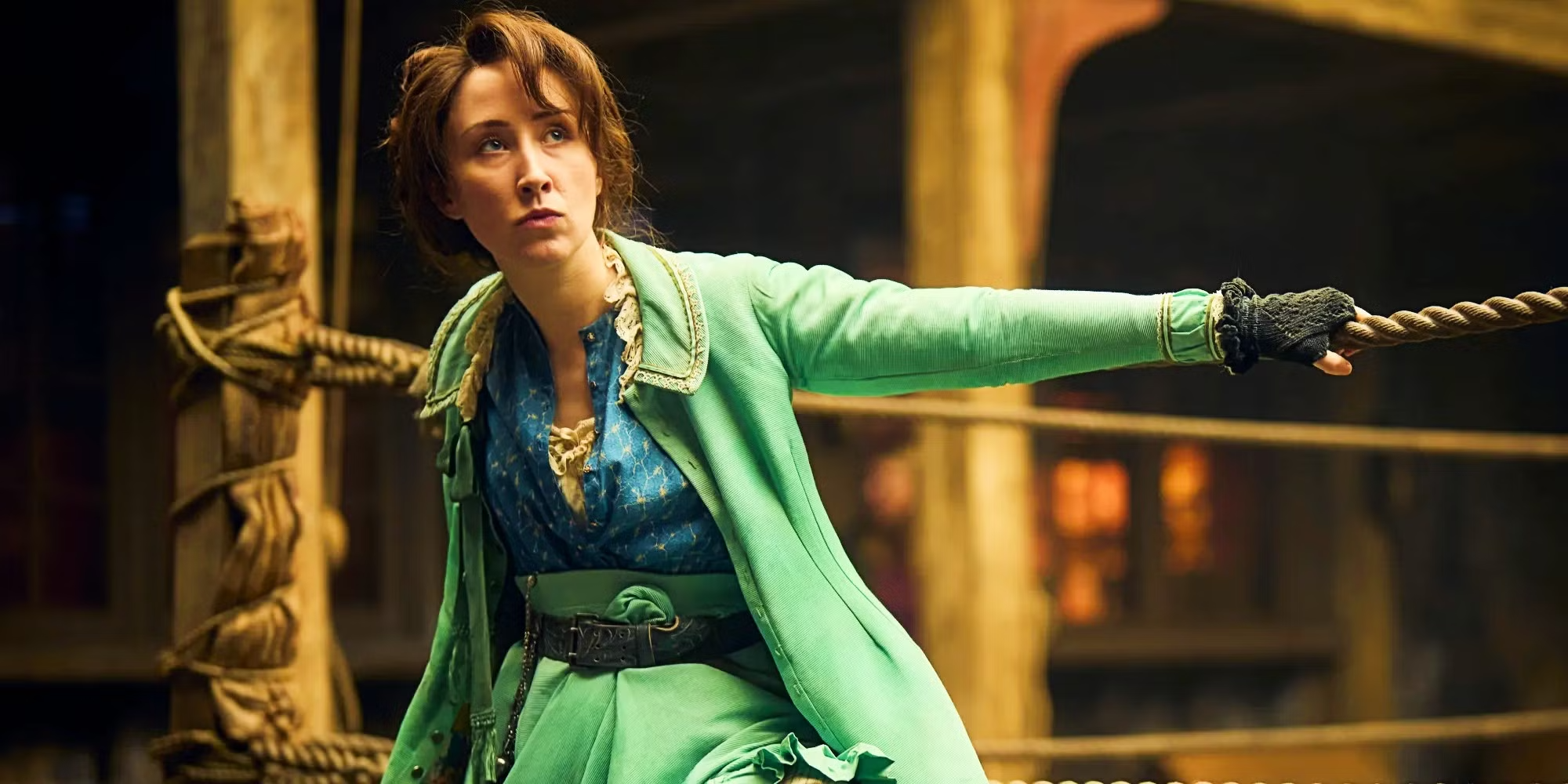
Created by Peaky Blinders showrunner Steven Knight, A Thousand Blows zooms in on the London Victorian underworld and follows three outsiders trying to uplift themselves in different, often illegal ways. There’s Mary Carr (Erin Rachael Doherty), an ambitious pickpocket who heads an all-female crime syndicate; Sugar Goodson (Stephen Graham), a merchant by day and bare-knuckle boxing champion by night; and London newcomer Hezekiah Moscow (Malachi Kirby), a Jamaican lion tamer who gets roped into Mary and Sugar’s complicated world. The conflicts the show takes onshow’s conflicts are as old as time: wealth inequality, gender divide, and racial discrimination. But Knight gives them a modern refresh so, coupled with razor-sharp dialogue, impressive choreography, gorgeous 1880s details, and stellar performances (particularly from Kirby), the show is invigorating to watch. Peaky Blinders fans who are missing the show will especially appreciate its grit and dark humor.
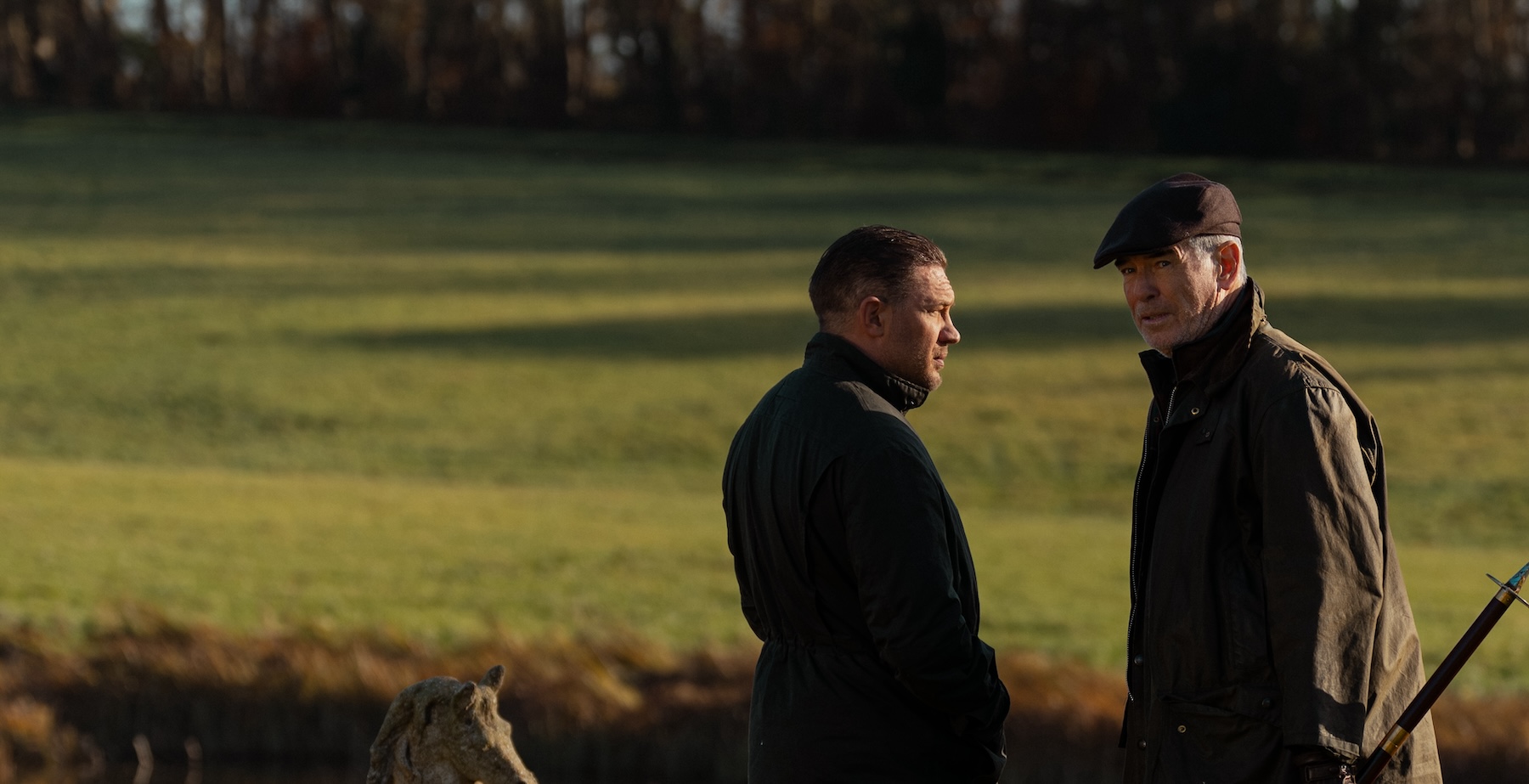
It’s easy to feel like you’ll know exactly what you’ll get once you see stills from Guy Ritchie’s MobLand, which stars Tom Hardy, Pierce Brosnan, and Helen Mirren. But while it features cliches of the mafia genre, MobLand is far from boring. Plenty of things are happening all at once, and in lesser hands, these storylines would’ve been a mess. But under Ritchie’s veteran guidance, things come together elegantly. It helps that Hardy is the perfect lead. Sure, he’s tough as the London underground’s main fixer, but he’s also surprisingly polite at times and quick-wittedly humorous at others. In the show’s quieter moments, he even manages to be poignant. The changes in tone are never jarring, instead always arriving at the right time. Even if Ritchie and Hardy have directed and starred in too-many-to-mention mob stories, they still delight and surprise in this enjoyable British series.
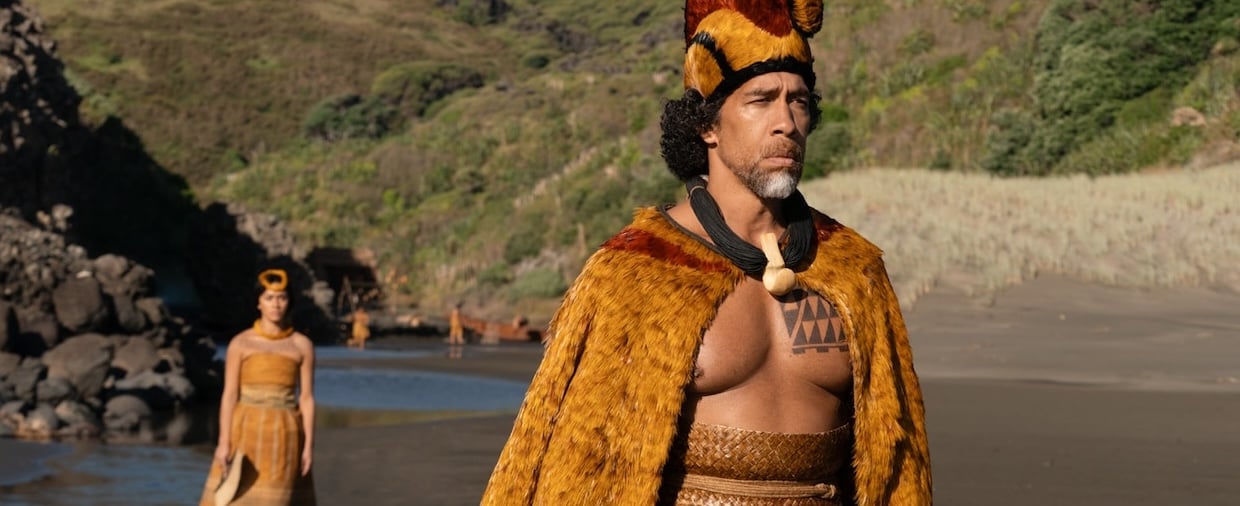
Co-created and starring Jason Momoa, Chief of War is a historical drama depicting the events that led to the unification of Hawaii. The series is rooted in the perspective of the indigenous people, not the eventual colonizers, which is rare in shows like this. Even FX’s Shogun, which tells a similar story set in 17th-century Japan, has a foreigner as the audience’s avatar. Chief of War, on the other hand, is committed to introducing the islanders in the context of their lived experience, which is why the first few episodes are spoken in pure Hawaiian.
The series is loaded with enlightening historical details, yet it never gets bogged down by them. Instead, it strikes a fine balance between intense action, meaningful characterization, and the island’s deep lore. It helps, too, that the series looks glorious—all lush and sunlit. Controversially, much of Chief of War was shot in New Zealand, not Hawaii, but the show still looks better than 90% of the grayish sludge on TV right now.

From the creators of HBO’s Mare of Easttown comes Task, a gritty crime drama that follows two men —one cop and one criminal —who, despite their differences, are on a similarly rocky journey towards healing. The series is slow to start, and it doesn’t help that the premise is something you’ve seen many times. But the details of Task, from the compelling performances to the excellently choreographed action sequences, make it a thrilling watch. What it lacks in novelty it more than makes up for in the intricacy of its details.
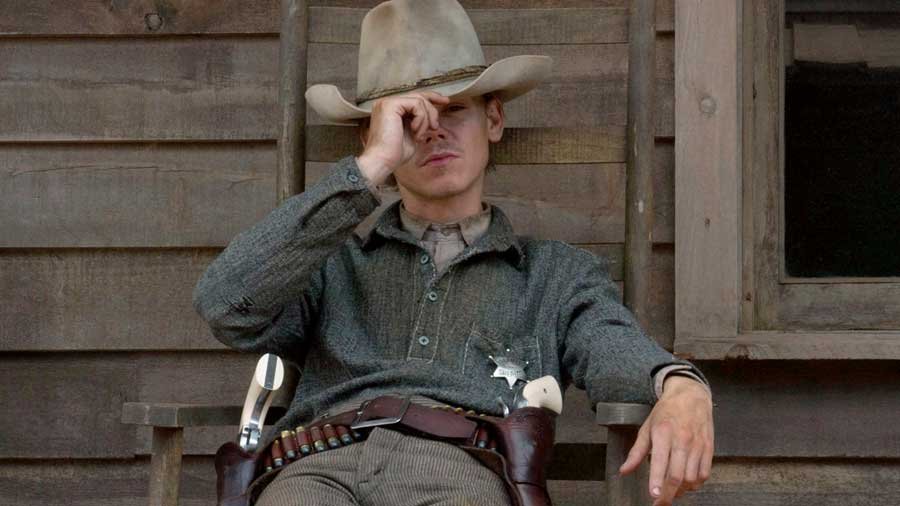
Very violent, very Western, and, in a breath of fresh air: very female. Godless is a grim and visually stunning series about a small New Mexico town populated almost entirely by women, including Alice Fletcher, a reserved and self-reliant widow played by Michelle Dockery. Roy Goode (played by Jeff Daniels, who won an Emmy for it) is an outlaw chased by a much worse outlaw, Frank Griffin, who is taking in by the mysterious, gun-toting widows. Written and directed by Scott Frank and executive-produced by Steven Soderbergh, Godless is an honest and powerful show with amazing performances. So amazing, it’s hard to single one of them out. If you love Westerns but sometimes find them too foreseeable, this show is for you.
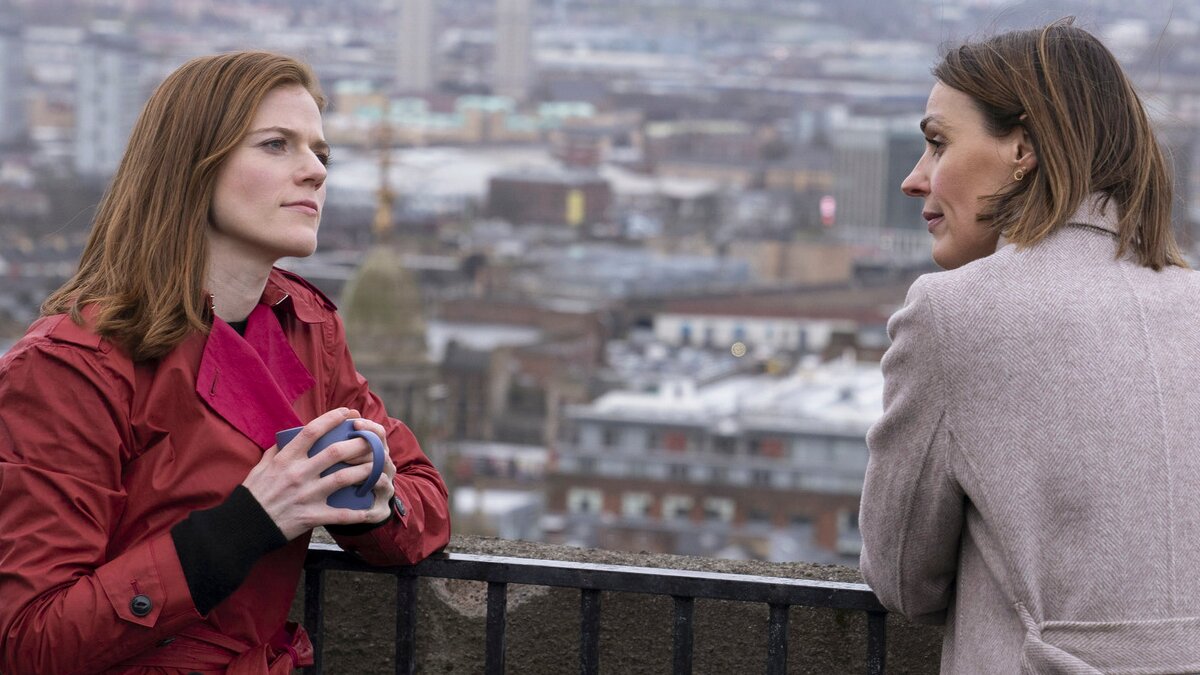
Vigil is a murder mystery/political thriller set in the depths of British waters, particularly in the nuclear-powered missile submarine HMS Vigil. When a navy officer dies and a fishing trawler disappears at the same time and place, Detective Chief Inspector Amy Silva (Suranne Jones) is sent in to investigate the case.
While Vigil mostly dove under the radar when it first came out last year, the BBC production is drawing in new audiences as it streams on Peacock. Watching it, it’s easy to forget that this isn’t a box-office production, because it looks and sounds every bit like one. It’s got a massive budget, an epic scale, a thrilling political premise, and talented actors across the board—what’s not to love?
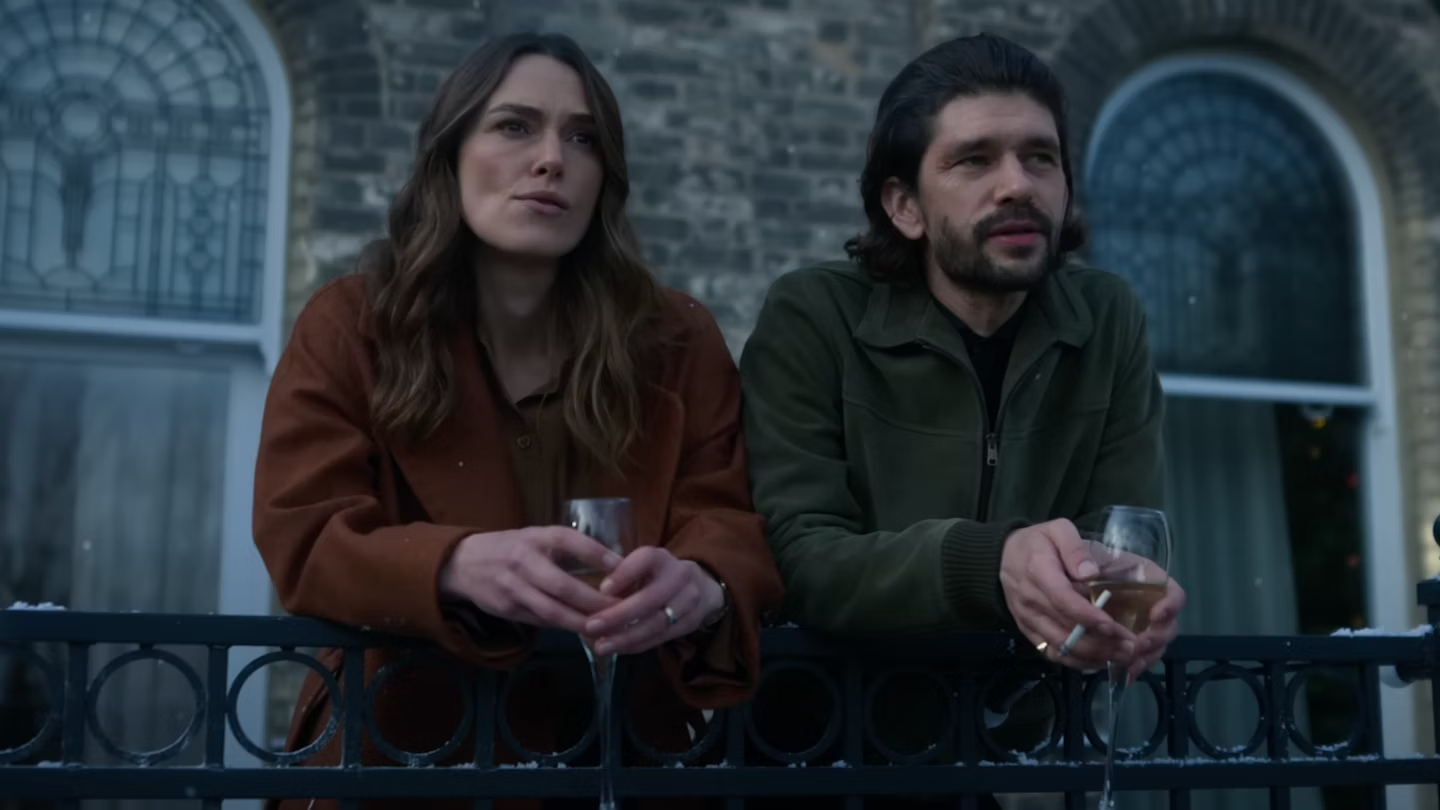
I would be okay if Black Doves was just a straightforward spy thriller; Knightley and Whishaw have enough charm, enigma, and kick-ass competence to make it work. But beyond the show’s cool and slick demeanor lies a wealth of other gems. It’s a heartwarming friendship tale for one, and a heartbreaking romance for another. It also manages to be funny at the right times, thanks to Sam’s bumbling accomplices, while evoking Christmas cheer. It sounds like a random mishmash of things, but Black Doves effortlessly blends its many tones and genres. Knightley and Whishaw ground the show’s ambition with their affecting performance as two cold-blooded killers who depend on each other’s trust and friendship. It also helps that there’s a depth to the deaths in Black Doves. There’s a nuance here that’s missing in most crime and action thrillers. Bodies are still dispensable, but you know why and how they’ve reached that point. If you want something smart and gripping that isn’t Die Hard to put on this holiday season, this could be it.

Since the 1960s, Flint, Michigan, has experienced a series of shocks. When General Motors downsized their workforce by several 10.000, the town’s population nearly halved. Unsurprisingly, it later became known for being one of the most dangerous cities in the US and for off-the-charts crime statistics. Since 2014, Flint again rose to tragic fame for a public health emergency due to contamination of its local water supply. Flint Town homes in on this perpetual state of crisis through the eyes of the local police department, who had to grapple with this dire scenario, while losing more funding year over year due to the city’s deteriorating financial situation. The few officers that are left for policing are at breaking point. The result is a gripping and rich docuseries with a host of strong characters. But it is also a brutal and sobering account of the extent to which an American city is being allowed to fail.
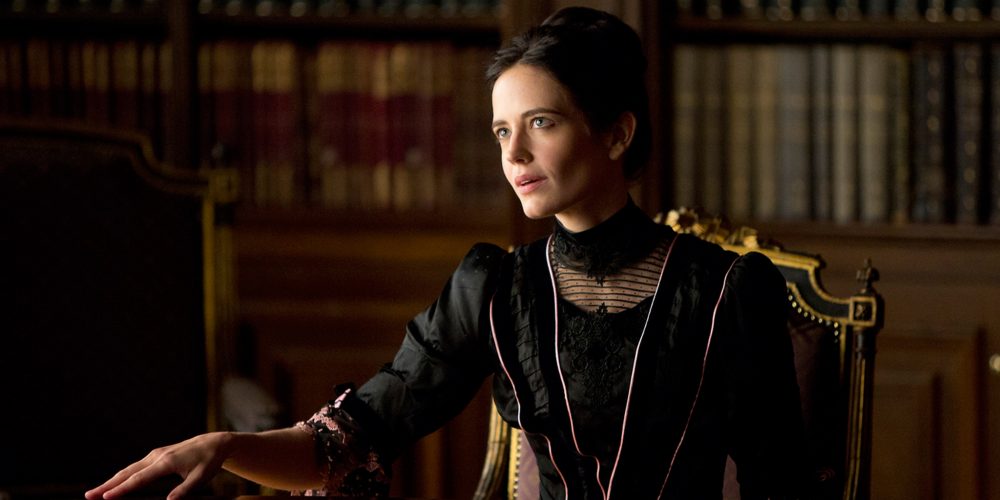
Here’s something for all the goth lovers out there. With a title alluding to the cheap sensational fiction that was circulated in mid-Victorian Britain, this show is all about monsters, demons, and some of literature’s most iconic creatures haunting Victorian London, including Dorian Gray, Count Dracula, and Dr. Frankenstein. It utilizes all these characters to tell a captivating, macabre, and bloody story. Season 1 revolves around a series of gruesome deaths being investigated by the police, while Sir Malcolm Murray (played by one-time James Bond Timothy Dalton), a renowned explorer, and medium Vanessa Ives (played by the amazing Eva Green, who, incidentally, is an ex-Bond girl) know that there is much more at play here. Season 1 is entertaining, but Season 2 is even better, making the most of all the gothic, literary characters and, above all, the multitude of great actors playing them.
Produced by David E. Kelley, one of the most prolific TV writer-producers and the mastermind behind Boston Legal, Picket Fences, and, more recently, the amazing HBO show Big Little Lies, Goliath follows Billy McBride, a formerly brilliant but washed-up lawyer, who becomes an alcoholic after having acquitted somebody who went on to kill an entire family. McBride is played by Billy Bob Thornton in one of the best performances of his career. (A big claim with a career like that.) A big case randomly comes his way that allows him to go against the big law firm he once co-founded – David against Goliath. With a sex worker as his paralegal (Brittany Gold played by Tania Raymonde), he embarks on a journey to find justice for the victims and redemption for himself. The colorful supporting cast is as good as the main actors, playing an array of unconventional characters and some badass women, including Molly Parker from House of Cards. Goliath is the perfect binge.

There are only 20 seats in Formula 1 each year, meaning that drivers are not only racing to win but to be kept on the roster. With the big stars, Ferrari and Mercedes, habitually shrouded in secrecy, Formula 1: Drive to Survive focuses more on the back of the grid. Lewis Hamilton, the five-time world champion, is rarely seen, for example, giving more room for other stories to unfold, including that of Günther Steiner, the Italian team principal of the Haas Formula One Team. That is not to say there are no big reveals. Even if you think Formula 1 is a decadent, testosterone-driven sports for rich Europeans, Drive to Survive might be welcome crash course into what makes this sport so appealing for many and might also have the potential to change your mind. If not, it is still a very well-made, slick, and engaging docuseries that will have enthusiasts and newcomers thoroughly entertained.
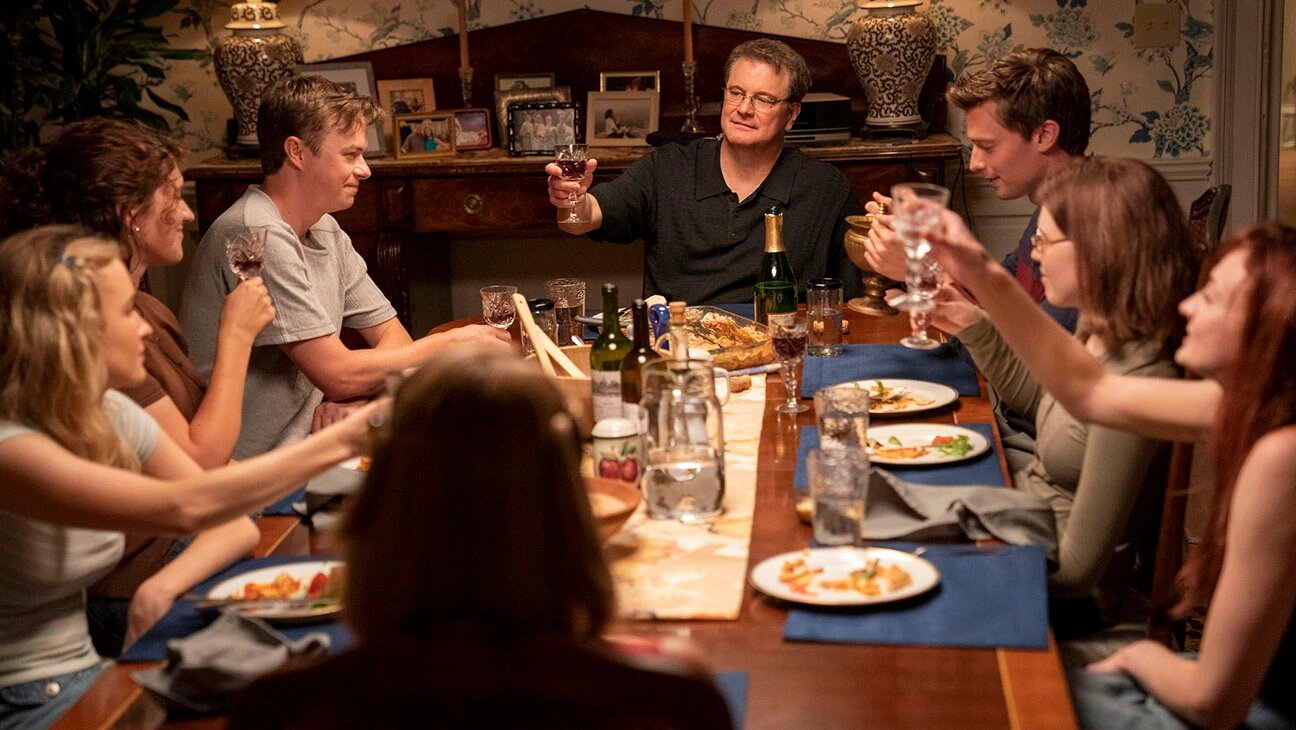
The bizarre case of Kathleen Peterson’s death, which has yet to be fully resolved to this day, has been the subject of many a media article. The press covered it relentlessly when it all started in 2001, then a critically-acclaimed documentary was released in 2004. This was followed up with a sequel in 2018, and now more than 20 years after the deed, a dramatization has come out in the form of a miniseries. You’d be forgiven for thinking the latter couldn’t possibly have anything new to offer, but you would also be wrong. In fact, the series is a masterclass in storytelling. Led by an a-list cast (of which Colin Firth is the absolute standout) and told with such layered depth, The Staircase is a must-watch not just for true crime but for film and TV fans everywhere.
Utilizing time jumps and crafty transitions, The Staircase isn’t set at one particular time, which is fitting considering the trial lasted for 16 years. It also isn’t centered on just the mystery or the family, but instead is just as interested in the making of the 2004 documentary that introduced (and humanized) the case to an even wider sect of people. If you’re looking for a neat ending or some form of satisfying retribution, you won’t find it here. But you will be getting an engrossing meditation on truth and its elusiveness
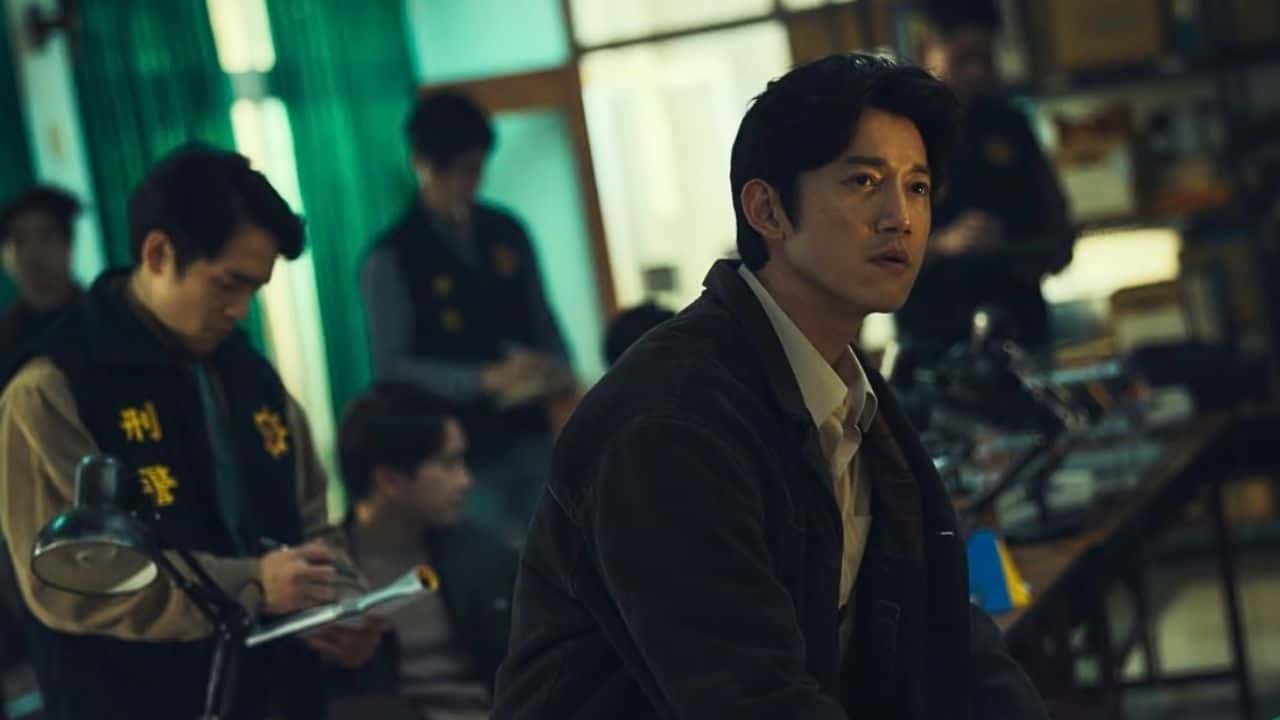
Copycat Killer is a gripping and unsettling crime thriller that takes its time to develop its characters and delve into a disturbing cat-and-mouse game between a relentless prosecutor and a manipulative serial killer. The show’s slow-burn approach keeps you invested in the characters’ journey, while the horrifying events remind you of the potential dangers lurking in the real world. With a mix of tension, manipulation, and grisly acts, Copycat Killer leaves you on edge, keeps you guessing at every turn, and serves as a reminder of the dark realities that exist in society.

Reimagining a children’s classic as a mature serial killer mystery, PLUTO already had high expectations for its anime adaptation. The limited series adds an additional challenge, with only hour-long episodes dedicated to each of the series’ eight volumes, which follows not only Gesicht’s own investigation, but also in-depth stories of each of the remaining Great Robots. However, the anime, now showing on Netflix, is able to meet this challenge with its deep understanding of the source material. It’s not just a straightforward police procedural, or just futuristic dream of how AI and humans can co-exist. PLUTO is a robot series that strikes at the heart of what it means to be human.
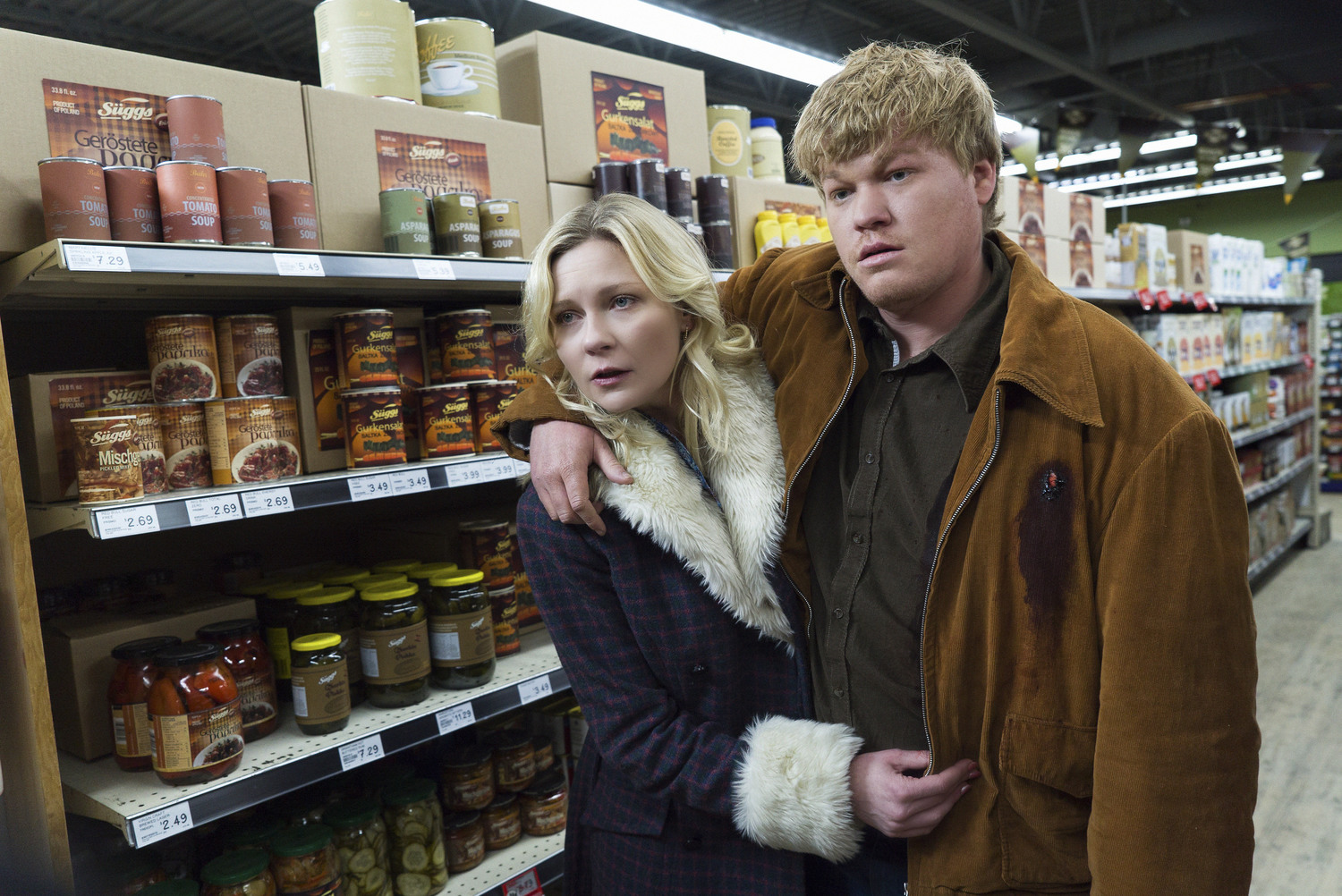
Taking the violence and offbeat comedy of the original movie and adding constantly expanding narratives on top of it, Noah Hawley’s TV adaptation of Fargo arguably becomes an even richer portrait of the dark side of human nature hiding inside modern, polite society. All four complete seasons of the anthology series (with a fifth currently ongoing at the time of this writing) are an exercise in seeing how many dominoes can topple from a series of mismanaged coincidences. The resulting chaos then becomes more of a reflection on the kind of facades these characters would rather maintain for the sake of some semblance of control.
And perhaps with the exception of the show’s ambitious but sluggish fourth season, every Fargo story is dripping in suspense and cinematic polish, with plenty of chilling visuals and intricate music and sound design—not to mention ensemble casts who are almost always at the height of their powers. Each season has at least one stand-out, be it Alison Tolman and Billy Bob Thornton in season one, Carrie Coon and David Thewlis in season three, Ben Whishaw in season four, and practically everybody from season two. These are all actors who understand exactly how to inhabit the world Hawley has deepened, through wry humor and surprising pathos.

Watching The Day of the Jackal feels like watching a film; it’s taut, fast-paced, and flashy, featuring incredible dual performances by Redmayne and Lynch. Like many thrillers before it, The Day of the Jackal centers on a cat-and-mouse chase between an official and a transgressor, but the series smartly blurs the line between good and evil. Redmayne’s Jackal is by all accounts the bad guy—he’s a hitman after all—but we’re shown his humane side and the lives he works hard to protect. Meanwhile, Lynch’s Bianca is a government agent, but her hands are dirtied with just as much (if not more) blood than the Jackal. Who’s really at fault here? Part of the fun in watching this is figuring that out, but it’s also just as enjoyable to see what disguise the Jackal whips out, and what moral quandary Bianca finds herself deep in, next.
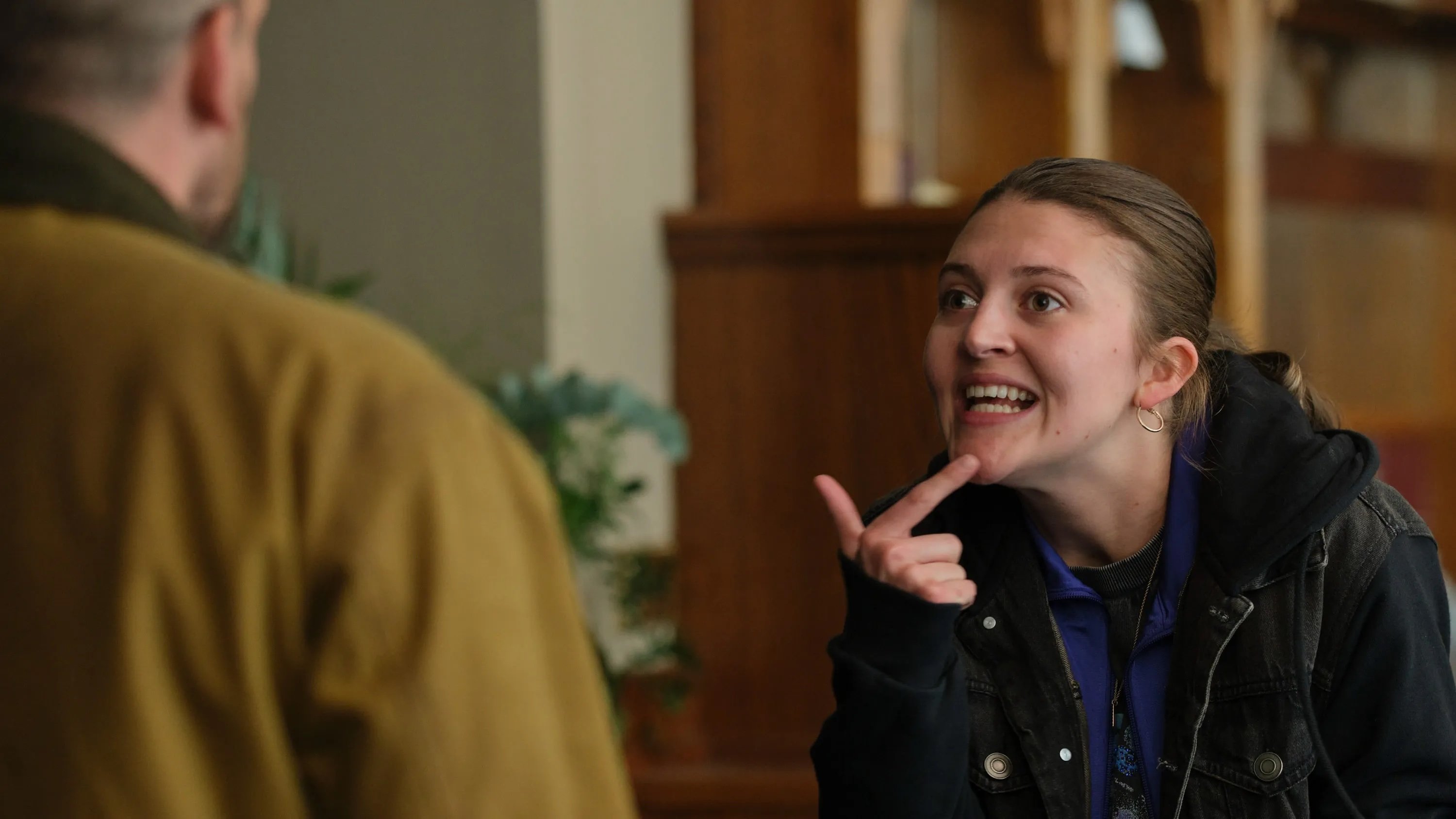
Reunion plays out like a typical thriller—it follows a recently released ex-con on the hunt for revenge. In most episodes, his reasons for killing remain a mystery, while his moral compass swings from hero to anti-hero. The beats and storylines are familiar, except for the fact that everything takes place in the realm of the deaf. The leading man, David Brennan (Matthew Gurney), is a deaf man who only uses sign language and the occasional angry gestures to communicate with those around him. The victim of his crime, Ray (Ace Mahbaz), was a stalwart in the deaf community, and so his widowed wife chases David in search of answers, answers David has promised Ray he’ll keep until his death. Reunion is an excellent show, if not in terms of narrative, then in terms of technical feats. Everything from the editing, cinematography, and especially the performances, which feature plenty from the deaf actors, point to how creatively and dedicately rooted the series is in the deaf community.
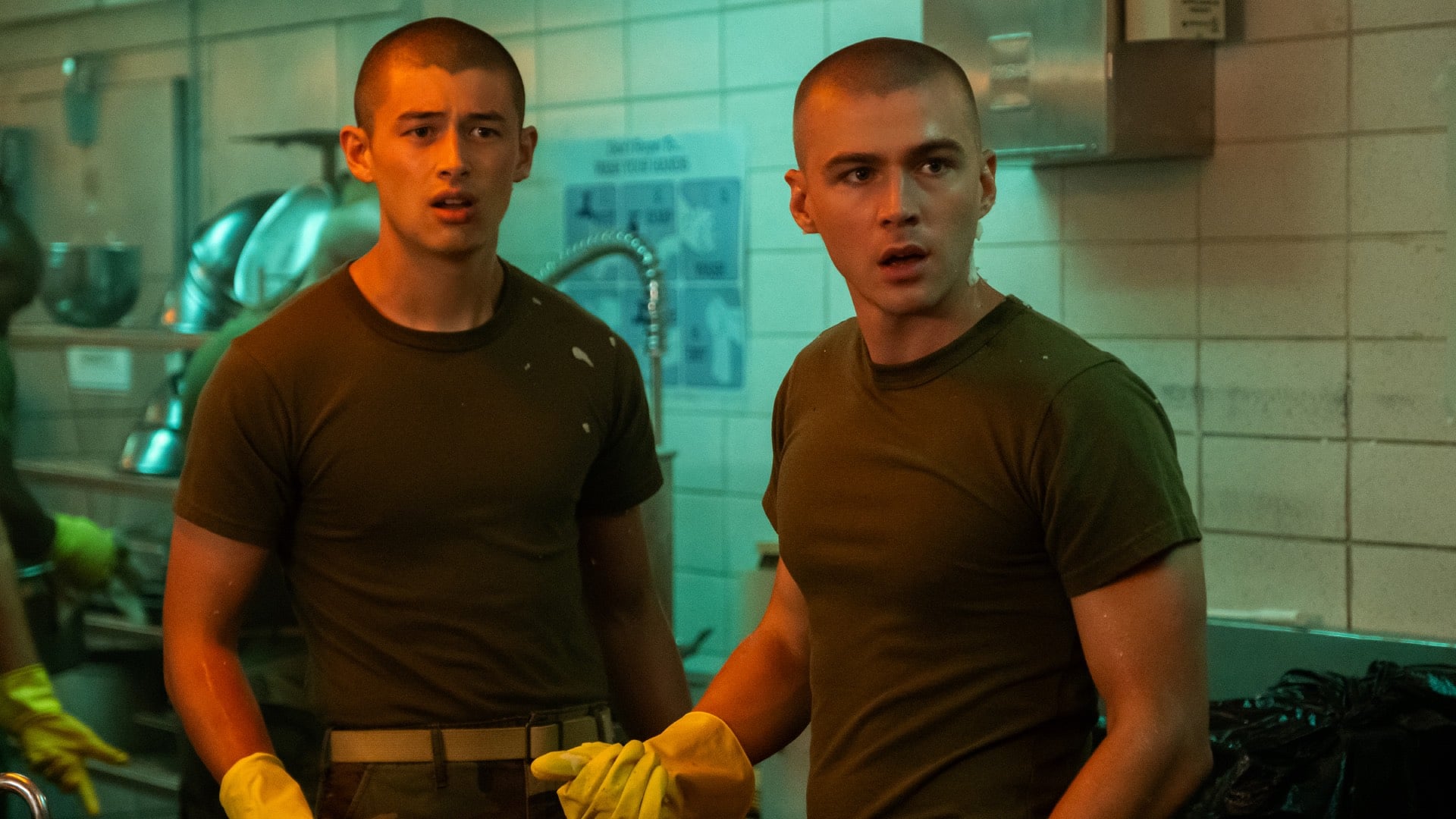
Inspired by The Pink Marine memoir, Boots expands on Greg Cope White’s story to widen its perspective from one recruit to a whole troop. It makes it a team effort, rather than a solo stint. With the different faces and the protagonist’s sexuality, this show updates the classic military show for this generation, but the change works mostly because of an interest in the whole ensemble, letting its relative newcomers play off each other and show off their strengths. And that’s in spite of the times this show was released in. It’s a shame that Netflix hasn’t greenlit this gem for a second season, considering that these guys prove their mettle in each of their performances. Boots has more ground to stomp on, if only certain companies had the same balls the creators here did.
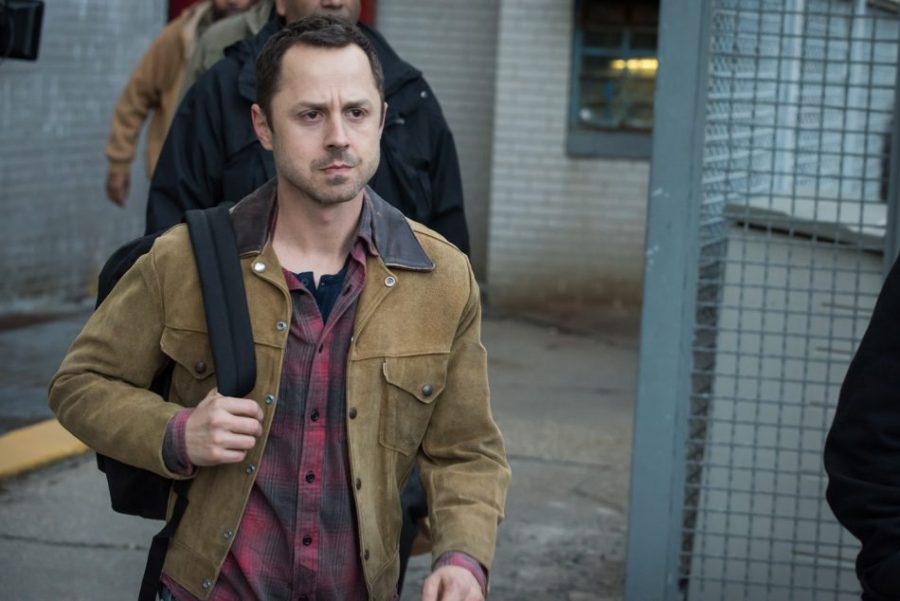
Sneaky Pete is probably the Amazon Prime Original that suffers the most from the platform’s awkward branding. Had it been on Netflix, your co-workers wouldn’t stop talking about it. Four years after the finale of the mighty Breaking Bad aired, Bryan Cranston is back with some thrilling, far-fetched, but furiously entertaining TV. A con man just released from prison, Marius Josipovic (Giovanni Ribisi) seeks to reconnect with his brother Eddie (Michael Drayer), who tells him that gangster Vince Lonigan (Cranston) wants payment for the $100,000 Marius owes him. Being a con man, Marius does what he does best, assuming his cellmate Pete Murphy’s identity and duping his family. This is where things get roaringly fun and a little absurd, while gangsters, the police, his brother, and Pete’s family do everything they can to make his life difficult. Suspend your disbelief, though, and you will be thoroughly entertained.
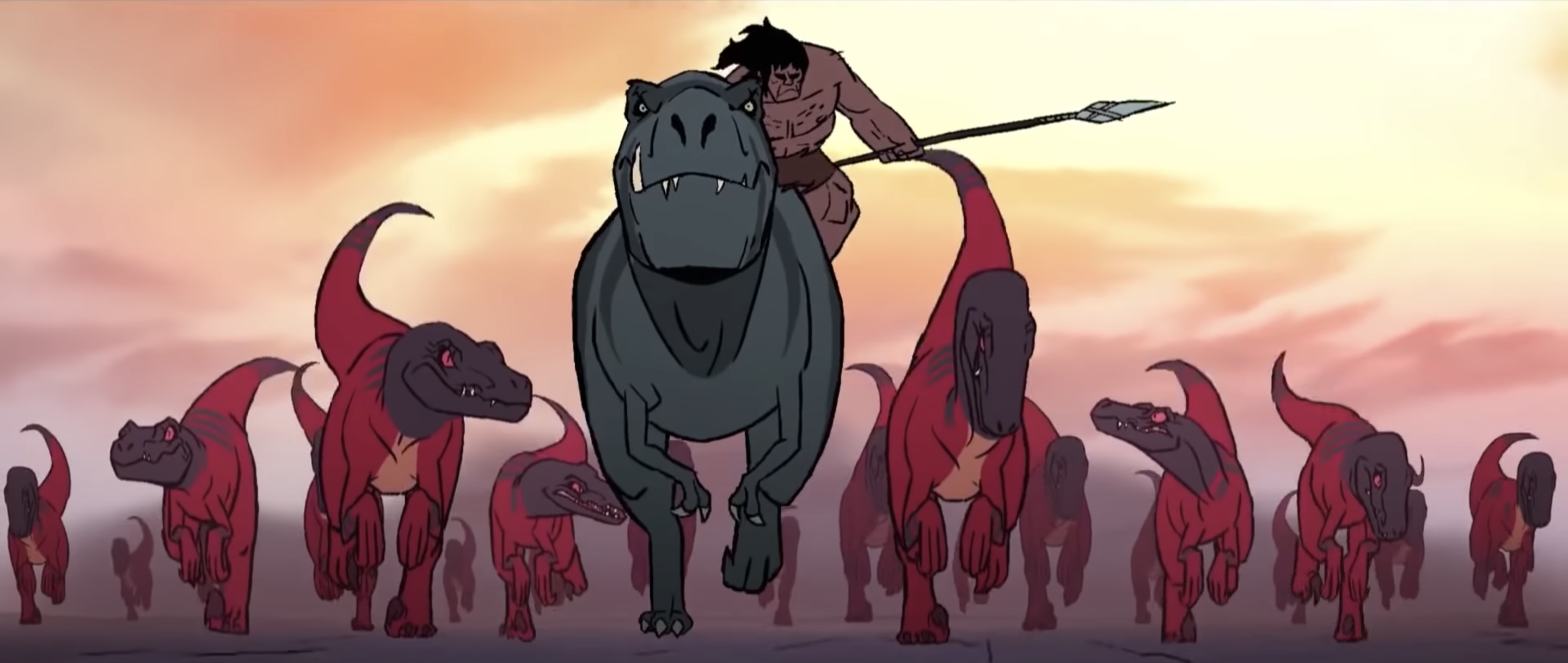
Disproving the notion that American animation is only for kids, the latest project from Genndy Tartakovsky (most known for Dexter’s Laboratory and Samurai Jack) is an uncompromising action epic that puts most multimillion-dollar live-action blockbusters to shame. Though Tartakovsky has stated that Primal will continue on as an anthology series, the first two seasons tell a surprisingly character-driven story about a caveman and a mother Tyrannosaurus teaming up to survive in the prehistoric wild—with nearly zero dialogue.
It’s a highly entertaining riff on the man vs. nature story that ends up creating a fleshed-out world full of monsters and magic and families destroyed by all this chaos. And this initial set-up only becomes stronger in its second season, as the warmongering nature of man becomes the real threat. It’s all wrapped up in a beautiful technical package that makes a case for traditional (2-D) animation as a vital art form.
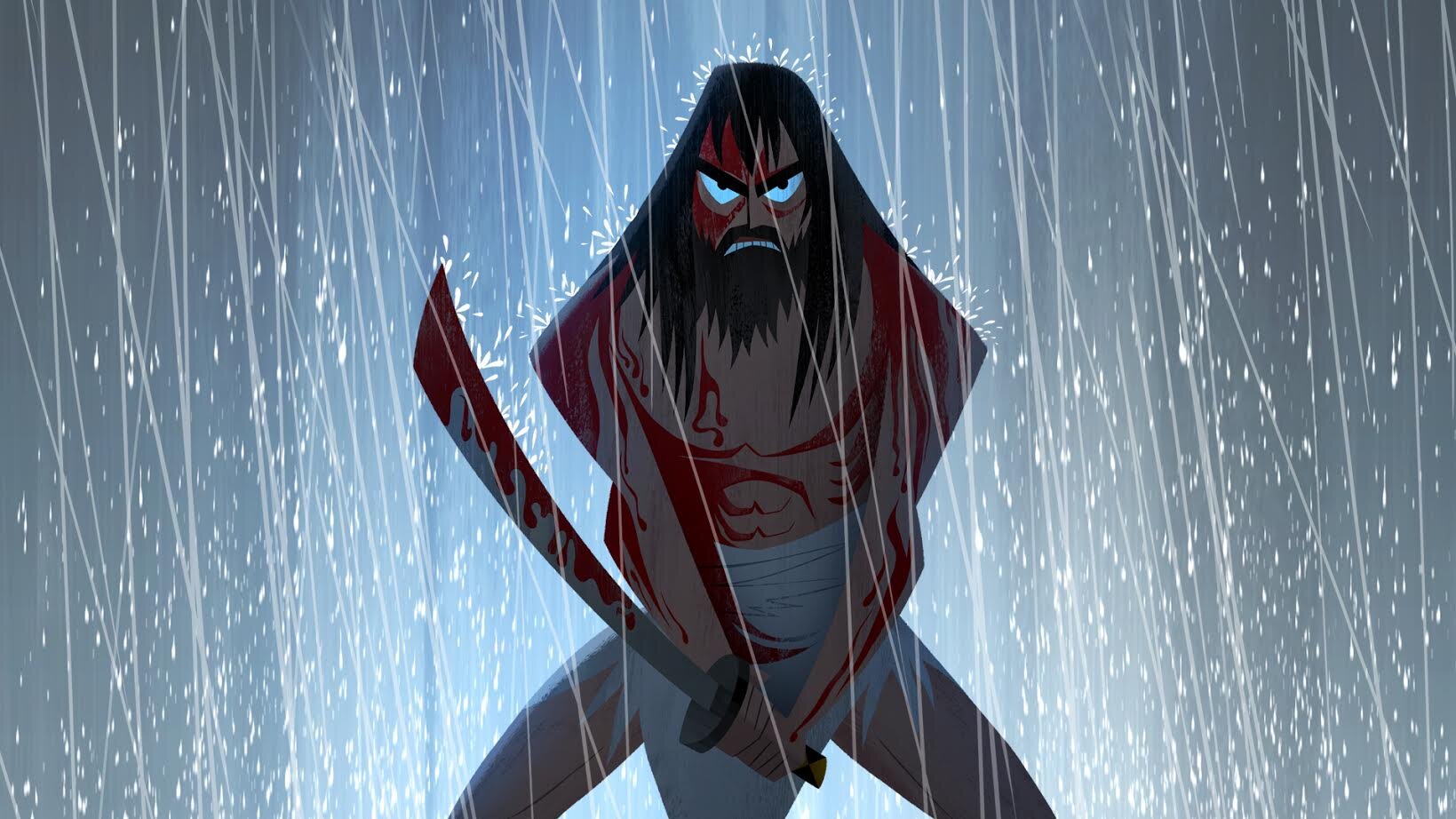
It’s a miracle that an animated series like Samurai Jack was ever made—much less allowed to endure—on a children’s network: barely any dialogue, action that approaches the realm of the avant-garde, and storytelling that doesn’t rely on jokes or moral lessons. For its first four seasons that aired from 2001 to 2003, it barely had a plot to speak of either, becoming a Sisyphean series of adventures through an increasingly strange universe that only emphasized Jack’s determination to finish his greater mission. And the more that the titular samurai would face off against his stoic robot adversaries, the more visually expressive these fights would get, the show constantly finding new ways to communicate purely through gorgeous, minimalist animation.
Only in the show’s unexpected fifth season (released much later in 2017) did Samurai Jack really commit to telling a story and developing the protagonist as an actual character—putting him through a crisis of faith and having him face his repeated failure through the show’s previous seasons. The results weren’t flawless, with a rushed conclusion and a romantic interest who never quite came into her own. But it would be difficult to overstate how ambitious this whole project was: a genuine sci-fi/fantasy epic that never compromised on its vision.
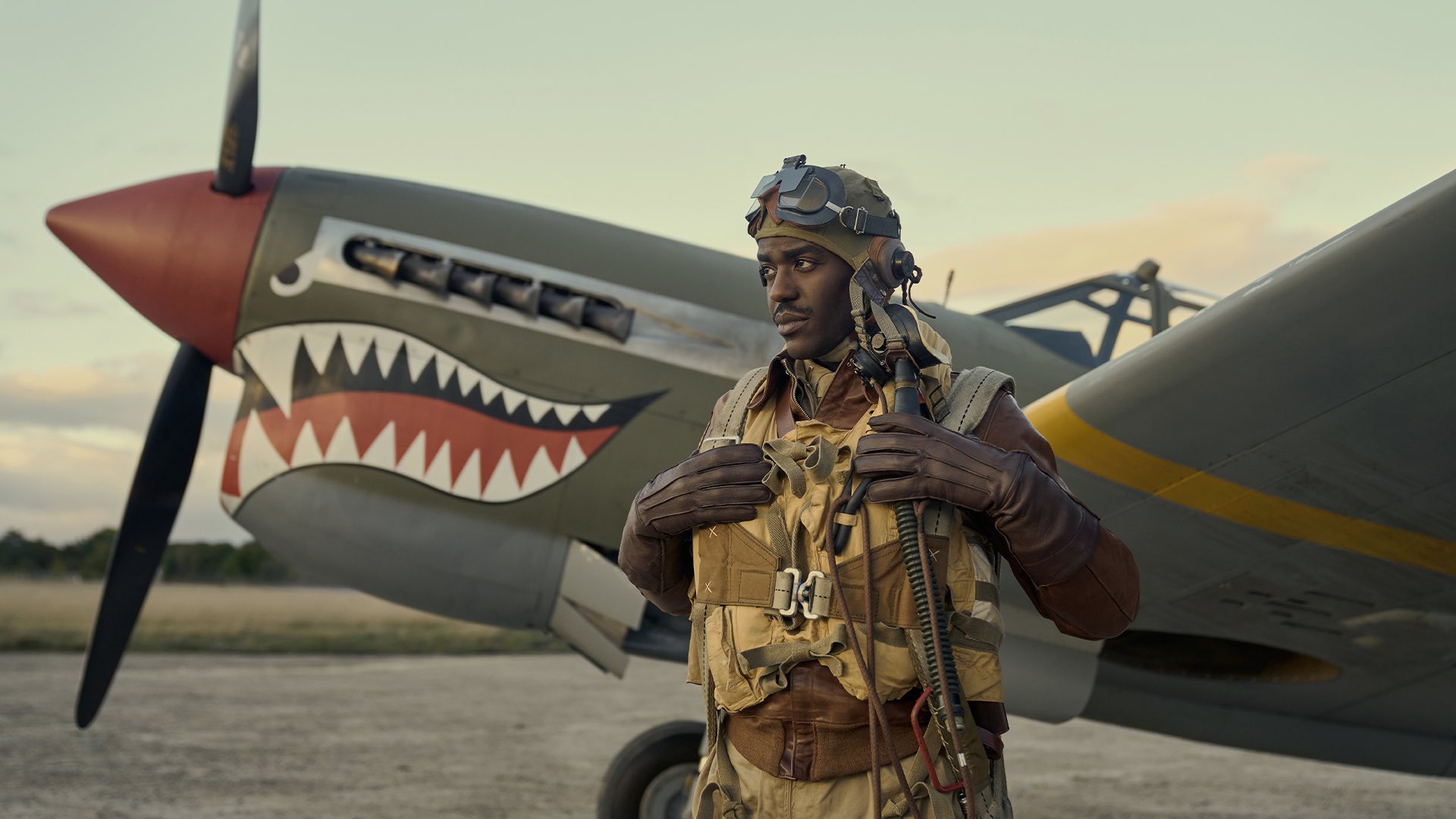
It’s hard not to be swept away by the epicness of Masters of the Air. Produced by Steven Spielberg and Tom Hanks, with the first four episodes directed by Cary Joji Fukunaga (No Time to Die, True Detective), it’s made sure to flex its massive $250-million budget. Everything is accounted for here, from the sweeping and historically accurate production design to the stacked cast of rising male stars (Oscar nominees Austin Butler and Barry Keoghan easily steal the show). Even the rousing score and sound design, while bordering on melodrama at times, build up tension and add a premium air to it. It’s a visual and sonic feast bolstered by upstanding performances and an endearing show of brotherhood. Whenever it risks being propagandistic or misguidedly patriotic, it’s the believable relationship between the boys and their grave understanding of war that ground it and give it heart. And of course, the air combats are edge-of-your-seat thrilling. Like Band of Brothers and The Pacific before it, it’s a visceral entry in the genre of World War II must-sees.
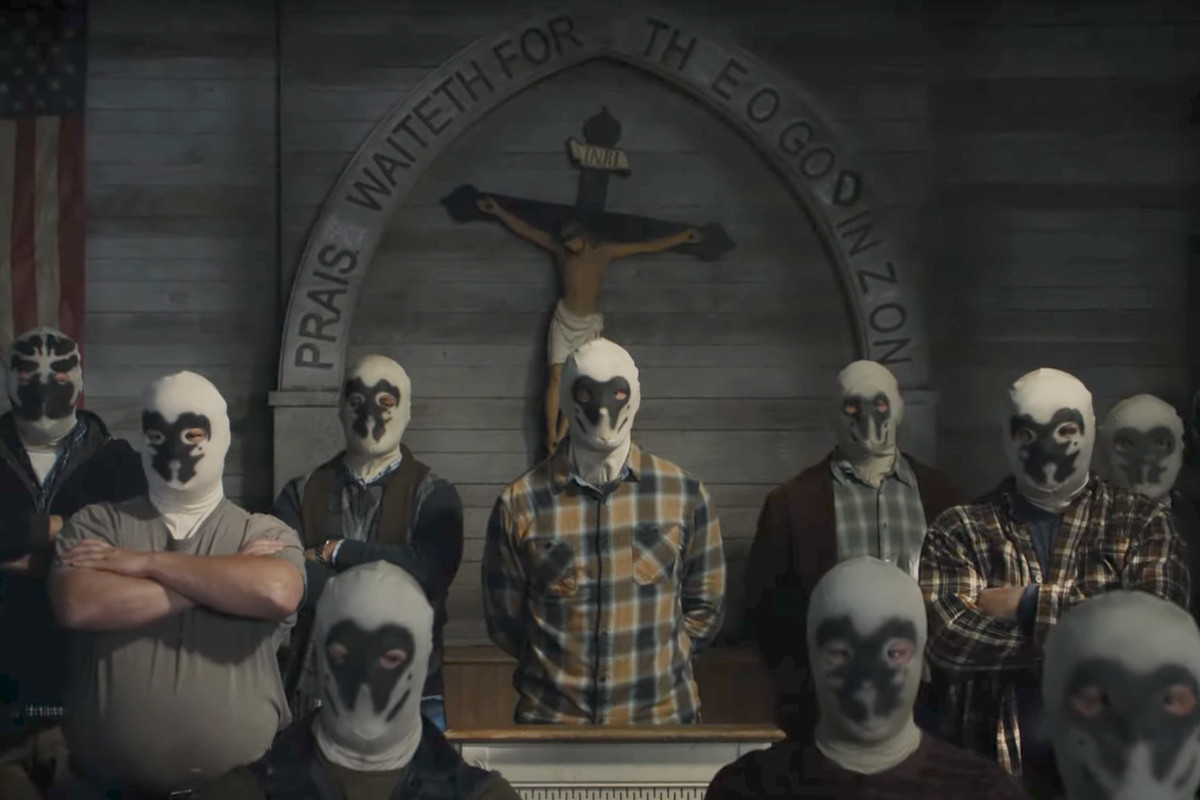
If all live-action superhero media stopped here, it would’ve been a triumphant conclusion. Carving its own path from the subversive Alan Moore classic and still so much gutsier than most superhero films and TV shows, Damon Lindelof’s Watchmen miniseries continues interrogating the idea of powerful masked vigilantes to explore institutionalized racism, America’s history of anti-Black violence, and even the phenomenon of white supremacy in “nerd culture” fandom. It’s an incendiary take on a genre that’s all-too-often reduced to mindless fantasy action, and it never tries to beat other properties at their own game—relying on constantly building intrigue and fantastic characters to tell its story.
But even if you’re not familiar with the original Watchmen story, the series should have enough style and intricate plotting for everybody. A pulsating musical score from Trent Reznor and Atticus Ross; gritty (but not flavorless) art direction; and powerful performances from Regina King, Tim Blake Nelson, and Jean Smart, among others complete this vision of a nation plunged into chaos due to collective unresolved trauma. All this makes for viewing that’s never difficult, but demands trust and attention even as the story branches off to places that seem at odds with itself. How often can you say that about a superhero story these days?
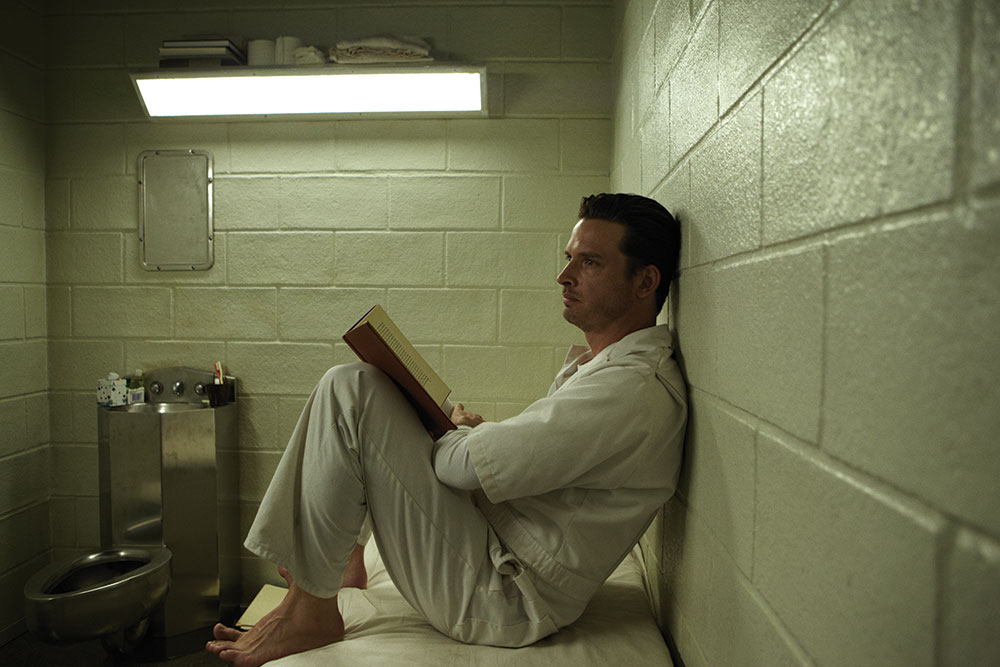
Some of the best novels of all time will probably take a few pages to introduce their premise, backstory, and key characters, and might demand some patience until the plot fully unfolds. This might be a hard sell in today’s world of short attention-spans, but some stories just need the time. Rectify is one of those stories. We meet Daniel Holden, played by Aden Young, after he is released from death-row prison after 19 years. While smart and thoughtful, Holden is obviously a damaged man, slightly out of synch with the world outside. His release affects his family very differently – some, like his sister, Agatha, had been fighting for his release since the day he was arrested. Others, like his brother-in-law, suspect he’s guilty of the crime he was accused of. Still others, like the fictional town’s sheriff, are bent on finding new evidence to lock him away again. So, in addition to awe-striking Southern landscapes, thought-provoking themes, subtle writing, you get a deep and detailed character-driven plot played by amazing actors. It might be too slow for some. This is not a who-dunnit or true-crime voyeurism. But you will be hard-pressed to find someone who isn’t enveloped by torrent of emotion when Daniel meets his mother and sister outside of a prison cell for the first time in nearly twenty years in the very first episode. And it really gets better and better with every season.
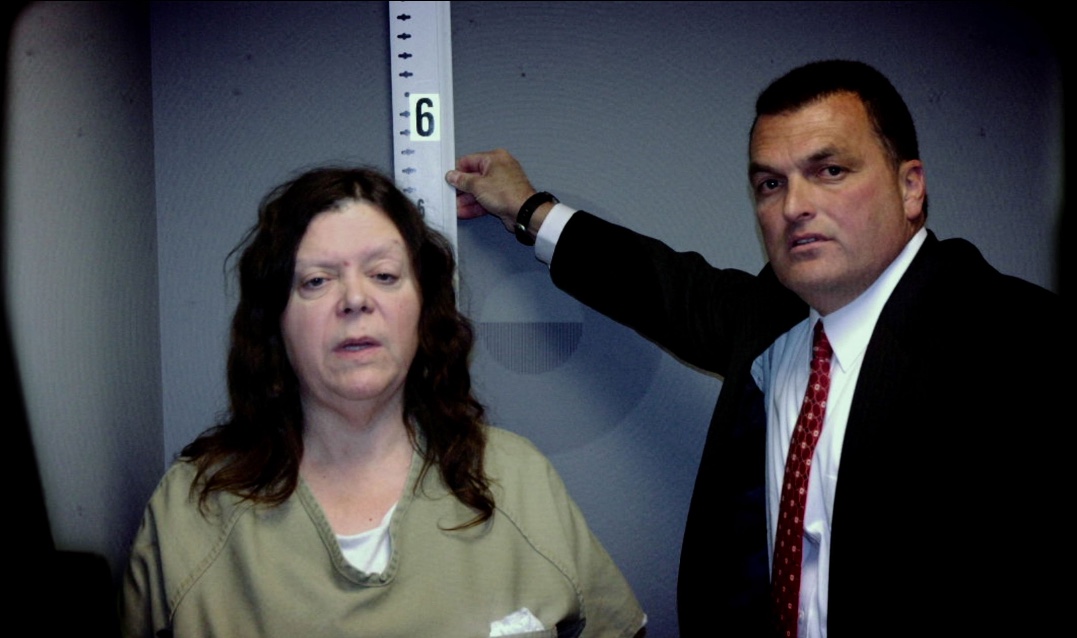
There is footage and coverage to prove that the pizza bomber story actually happened but watching Evil Genius: The True Story of America’s Most Diabolical Bank Heist everything is so intriguing it is almost impossible to believe. A pizza-delivery guy shows up to rob a bank with what he says is a bomb secured around his neck, something that he claims is part of a treasure hunt. By robbing the bank, he will unlock the next set of clues that will allow him to defuse the bomb. Bank tellers comply but on the way out he is suddenly arrested by the police, who doubt his claims, handcuff him and keep him at a distance. The device he has around his neck then starts beeping. What follows is one of the most unusual investigations ever led by security forces, brilliantly framed by executive producers Duplass brothers. A perfect follow-up to their other amazing True-crime Netflix collaboration, Wild Wild Country, it’s a tight 4-episodes that is equally terrifying and intriguing.
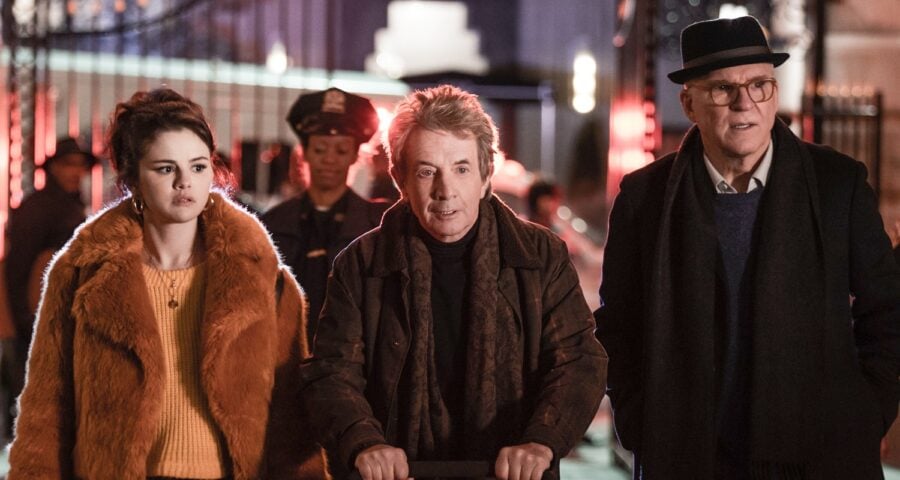
Steve Martin, Selena Gomez, and Martin Short star in this fun series about three strangers who suddenly find themselves in the middle of a murder scene. As true crime fans, they form an unexpected bond and run an investigation—all while recording a podcast. In between funny and poignant bits, they soon realize a murderer might be among them; they attempt to get to the truth of the matter before it’s too late.
Martin, Gomez, and Short make for an endearing bumbling trio of detectives, and with great charm and balance, Only Murders in the Building succeeds in serving mystery, empathy, and true delight in short-but-sweet episodes.
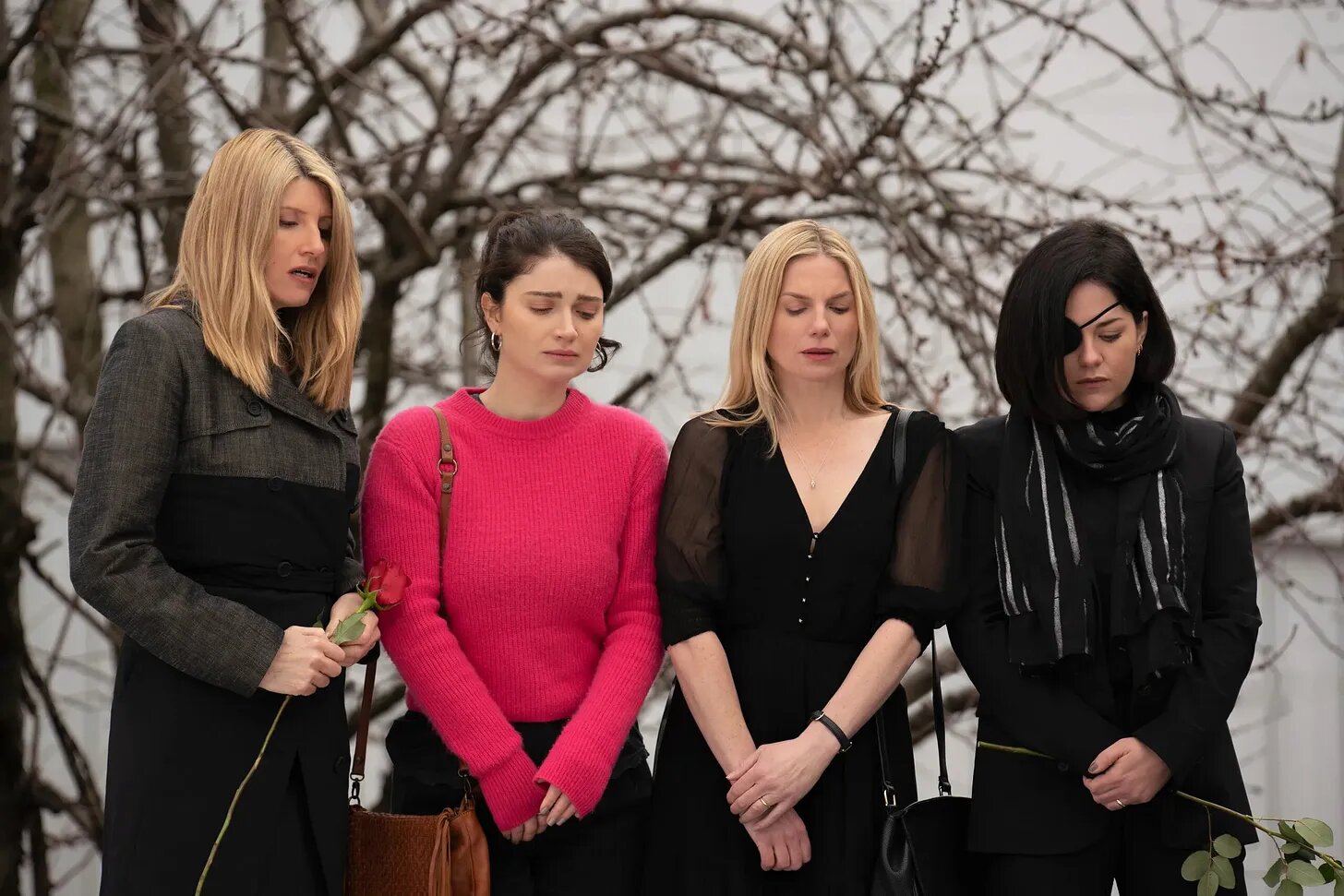
Bad Sisters is an Irish miniseries that is part romance, part murder mystery, and all-around cheeky, bold fun. It follows the Garveys, five sisters who’ve developed a tight bond after the untimely death of their parents. They protect each other mainly from their brother-in-law John Paul, whose antics have become increasingly threatening and toxic over the years.
The series is very much in the vein of Big Little Lies, Dead to Me, and Good Girls, where women who’ve kept up with so much for so long finally let loose in a fit of violent rampage. But Bad Sisters narrowly escapes cliches thanks to a winning ensemble and deft handling of its weighty subject matter.
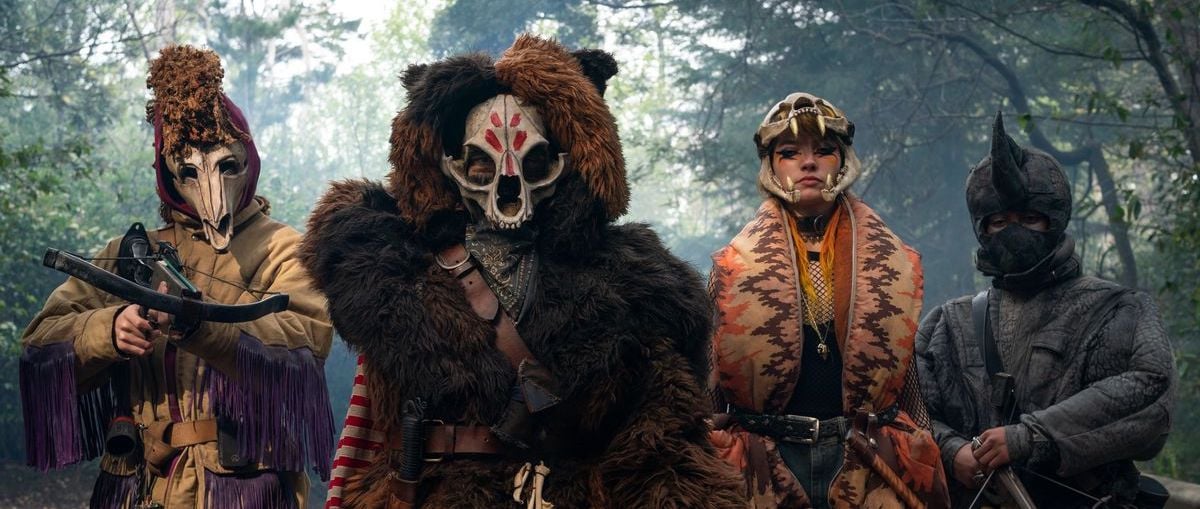
Sweet Tooth is set in a post-apocalyptic America, where the population has been ravaged by a mysterious virus and the new generation of humans has evolved into animal hybrids. The circumstances are bleak and the things people do to survive even more so. Driven by fear and grief, they both isolate and attack in moves that are eerily reminiscent of the early days of our own pandemic. Sweet Tooth is a robust adventure story then, gritty and reflective and tragic, but it’s also incredibly sweet.
We’re introduced to a myriad of characters, each of them with their own arc, but we mostly follow Gus (Christian Convery), a nine-year-old human-deer hybrid who has yet to be disillusioned by the human race. Gus grounds the story’s many flights of fancy, and along with the other main characters, he gives us timely reminders of the importance of kindness and humaneness without ever being too corny. And to the show’s serious credit, no one plot line overpowers the other; instead, all feel just as vital to the larger story of survival that’s being told.
The blend of these tales is lovely, the world-building is imaginative, and the technical aspects of it—the color, the costuming, and the cinematography—are all beautiful. Ultimately, Sweet Tooth is a packed a show wrapped in gorgeous layers, sure to delight even the most casual of viewers.

From the mastermind behind Netflix’s Kingdom, Kim Eun-Hee’s Signal is an exhilarating series that seamlessly weaves together gripping crime thriller elements with an intriguing touch of supernatural. With its unique premise of a mysterious walkie-talkie that connects the past and the present, the show follows a team of detectives from different eras as they collaborate to solve cold cases and unravel the secrets behind unsolved crimes. The superb writing and exceptional performances by the cast, including Lee Je-hoon, Kim Hye-soo, and Cho Jin-Woong, have made Signal a major hit among K-Drama fans.
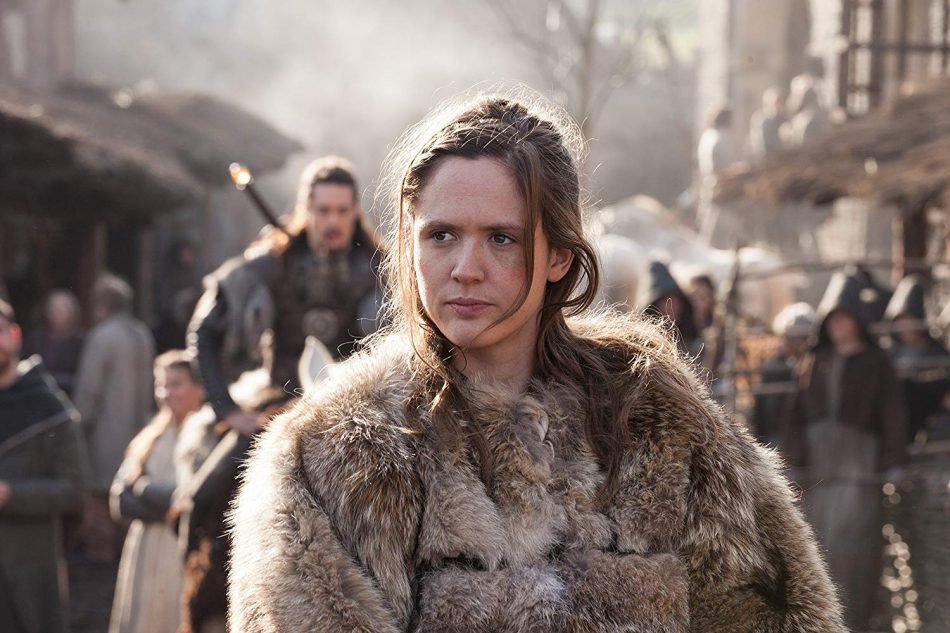
This historical fantasy show is based on the best-selling novel The Saxon Stories, a story set during the Viking / Dane invasion of Britain.
Uhtred was a small boy when he was kidnapped and then raised by the Danes. When he unexpectedly gets caught up in the conflict, his half-Saxon half-Dane mix makes at the same time valuable and untrustworthy for both sides.
There has never been a better alternative to Game of Thrones. The great writing and great performances from a cast of newcomers inevitably induce the same sense of addiction.
The Guardian’s lead critic said of Trapped: Seductive, involving, gripping…I am already, thoroughly, trapped. I’m quoting a publication to give some grounding to my overly excited claim: Trapped (or Ófærð) is one of the best TV shows ever made. I am obsessed with it. The plot is simple: a cop tries to solve a murder before a storm arrives, but the way it gets stretched is exceptional, and can only be compared to Scandinavian classics like The Hunt, The Guilty or Headhunters. And the fact that Trapped is from Iceland (not Norway or Denmark) adds a more chilling twist to the Scandinavian thriller genre. I don’t want to say more and ruin the show for you, but this is an amazing binge.
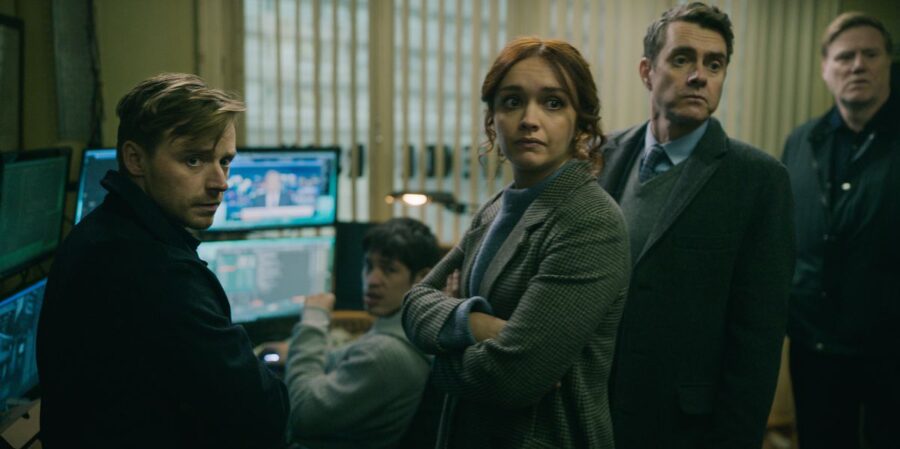
What if the UK’s MI5 was run not by sleek secret agents, but rather, a bunch of second-rate, hand-me-down spies? Slow Horses gives us a taste of that as it centers on Slough House, a division of MI5 that serves as a detention center for their smart but hopelessly damaged goods.
In this six-part miniseries, the Slough House agents reluctantly exchange their humdrum duties for a big and unexpected case. Led by the eccentric Jackson Lamb (a very funny and effective Gary Oldman), they track a group of Right-wing terrorists and their hostage before it’s too late. With its brisk pace, endearingly bumbling characters, and deft balance of suspense and humor, Slow Horses might just be one of the finest thrillers out there.
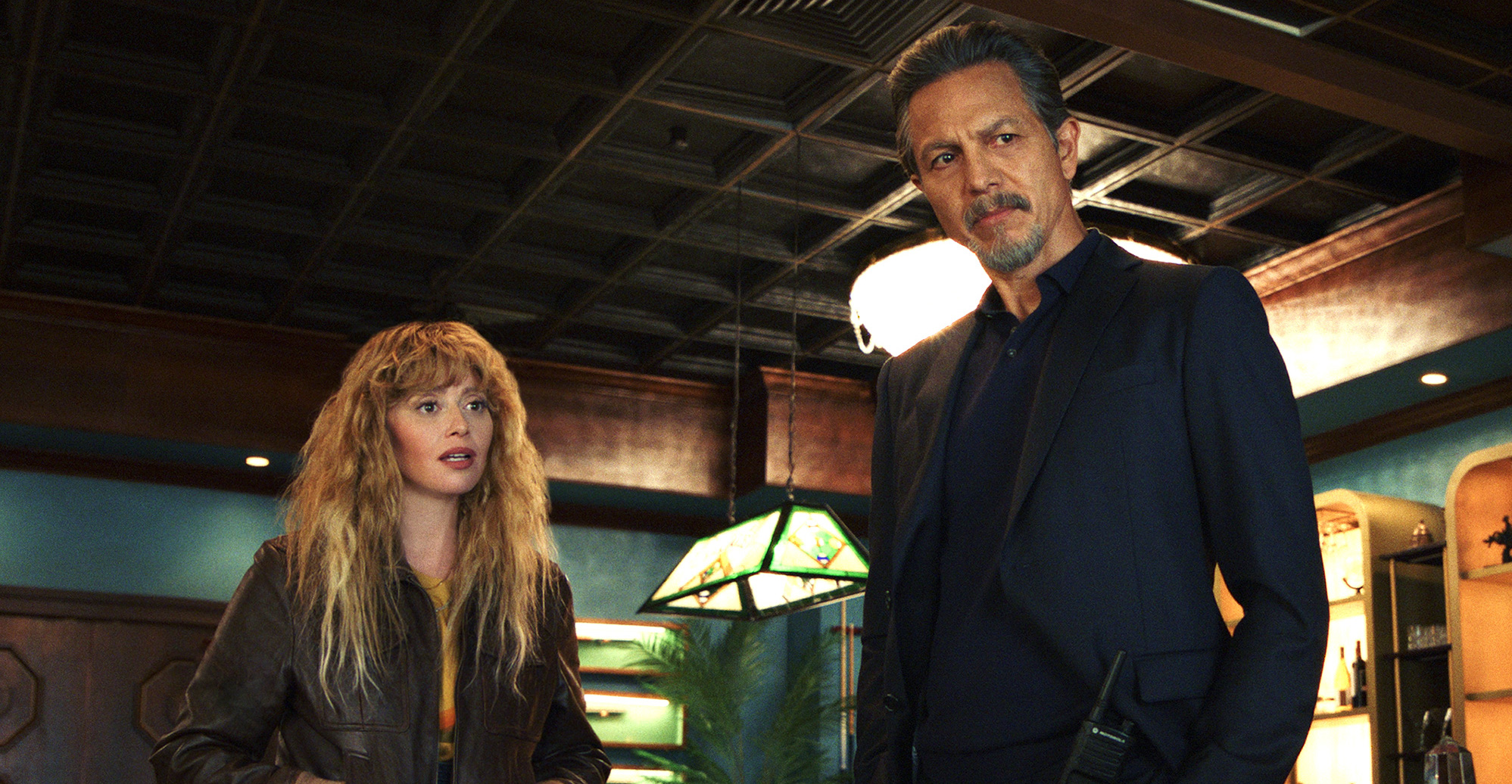
From the very start, Poker Face lays out all its cards—it shows us who dies and in the hands of whom. That is how an episode always opens, but in each case, we’re in a different corner of rural America, bumping elbows with different folks. That’s because our unwitting detective, the human lie detector Charlie (Natasha Lyonne) is on the run from a crime syndicate. So with nothing but her trusty car and the clothes on her back, she races through the US while making friends and enemies along the way.
There is a pattern to the story, but the thrill lies not in seeing when Charlie inevitably solves the case but in how she does it, which is full of heart and wry humor. Lyonne is absolutely magnetic, and her performance is only one of the show’s many hit-making elements. With a star-studded cast, beautiful Americana backdrop, and masterful editing (whose camerawork and coloring recall the show it references, Columbo), Poker Face sure is a trip to watch.
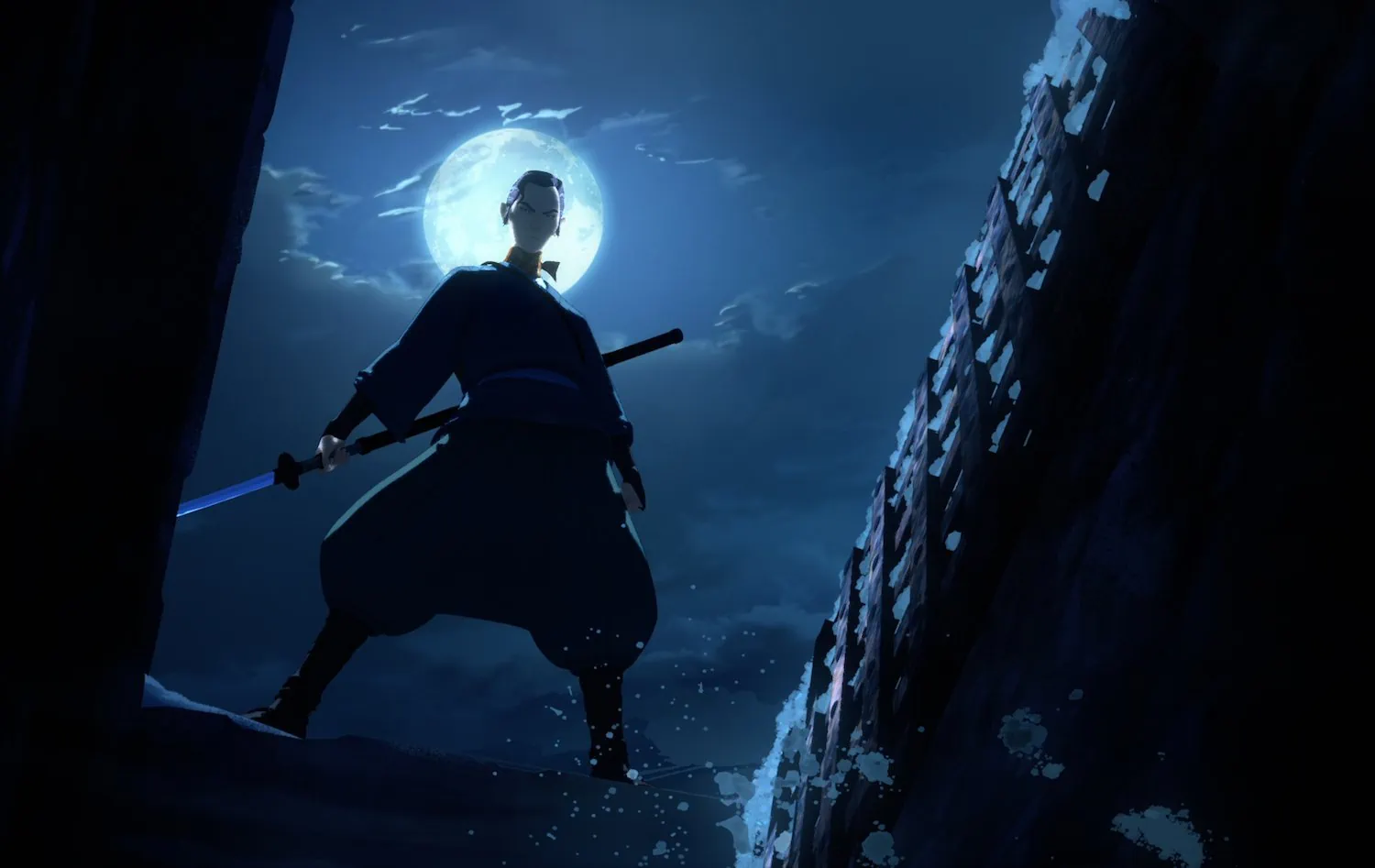
Starting off the series with slicing off fingers, Blue Eye Samurai is a thrilling action series that brings back samurai sword wielding in such a gorgeous fashion. Reminiscent of the classics, the animated series is centered on its titular warrior, whose blue eyes set them apart from society. She dedicates herself to a lifelong revenge journey, with gruesome sword fights, all to kill the four white men who could have been her father. And while she takes some side quests to her journey, missions that make her question the path she took, these seemingly straightforward fights slowly uncover the woman she became, and the pain inflicted upon those who can’t help but be different. It’s an action-packed spectacle, but it’s also an unflinching examination of trauma, and possibly one of the best animated releases from Netflix this year.
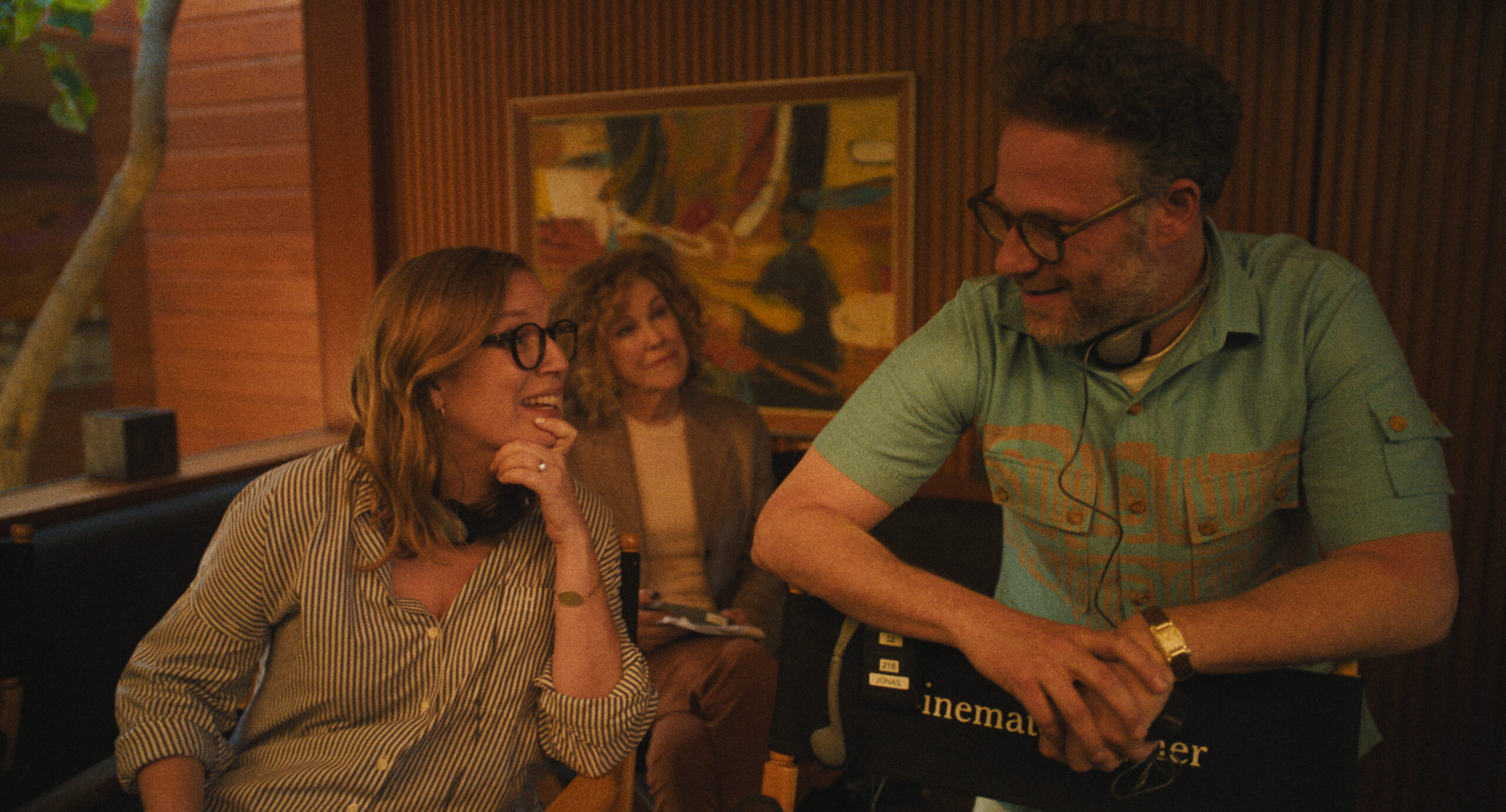
Fictionalizing their famous friends to satirize Hollywood isn’t new for Rogen and Goldberg (see: the stupidly brilliant This is the End), but in The Studio, the writing pair trade manchild and weed jokes for something more adult and high stakes. Rogen is still playing a version of himself—an anxious goofball eager to please—but he just so happens to be a bigshot producer now, and so a bigshot producer he plays. The pair take it a step further by making Rogen’s Matt Remick the head of a billion-dollar studio, Continental Pictures. And so it’s the usual hijinks, but this time with deeper (and depressing) insight into the industry’s inner workings. Rogen employs a circus car’s worth of renowned actors and directors to play themselves, all delivering hilarious performances. Martin Scorsese and Sarah Polley are early standouts.

The title of this romantic comedy series refers to the unusual meet-cute between its leads. As wealthy heiress Yoon Se-ri gets into a paragliding accident in the North Korean part of the DMZ, she meets KPA Captain Ri Jeong-hyeok. Considering the tension between the nations, this creates more life-or-death stakes than other non-fantastical romcoms. But rather than play it out in the most dour of ways, the series has fun with it, with a humor that riffs on the sheer awkwardness of the situation and the leads’ shared humanity. Crash Landing on You does take on some of the K-drama formula, but it brilliantly uses it to humanize both sides of a peninsula that once was united.
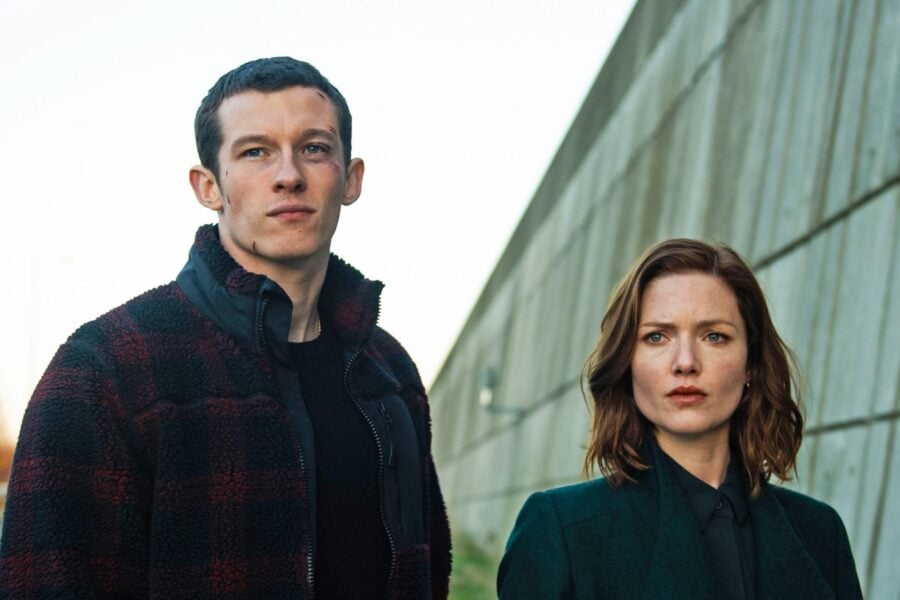
In BBC’s The Capture, a young soldier’s murder conviction is overturned thanks to submitted video evidence. But before he can enjoy his newfound freedom, a different video—this time live CCTV footage—places him at the scene of a new crime. The proof seems damning, but the deeper Detective Rachel Carey (Holliday Grainger) digs into the case, the more she learns about the wider conspiracy underneath it.
The Capture is everything you’d expect from a British police procedural: intelligent, lean, and sufficiently dramatic: no extra fat and unnecessary bits to be found here as action and mystery take center stage. And although TV may already be brimming with thrillers like it, what sets The Capture apart is its eerie insight into our so-called “post-truth” era. Instead of hardened criminals, our heroes go up against deepfakes, disinformation, and 24/7 surveillance. The series lets us know that the threat manipulated technology poses isn’t mere science fiction anymore—it’s evolved into an unfortunate and unbeatable reality.
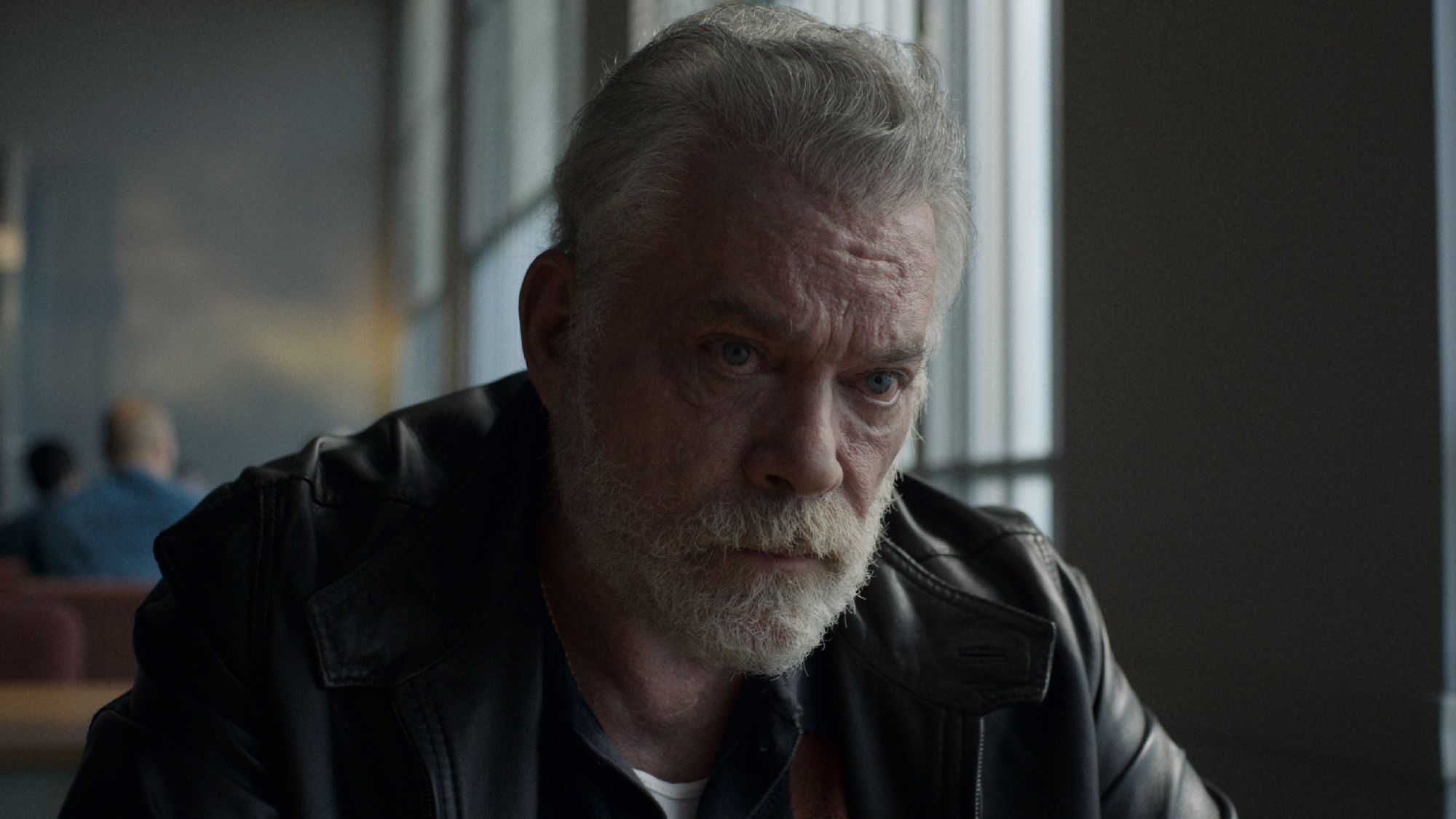
Based on true events, Black Bird follows James Keene (Taron Egerton), a narcotics dealer sentenced to ten years in jail. He makes a deal with the authorities to reduce his sentence, but in return, James has to befriend their deadliest convict—a child murderer played by the excellently terrifying Paul Walter Hauser—and extract a confession out of him before it’s too late.
If you’re a fan of gripping crime thrillers, anti-heroes, star-studded shows, and watching British actors do a perfect American accent, then Black Bird is right up your alley. The miniseries is also an excellent showcase of topnotch performances; Egerton and Hauser bring the house down in their excellently staged two-handers, Greg Kinnear is reliably sturdy as the determined detective, and Ray Liotta in one of his final roles is devastating as an ailing father.
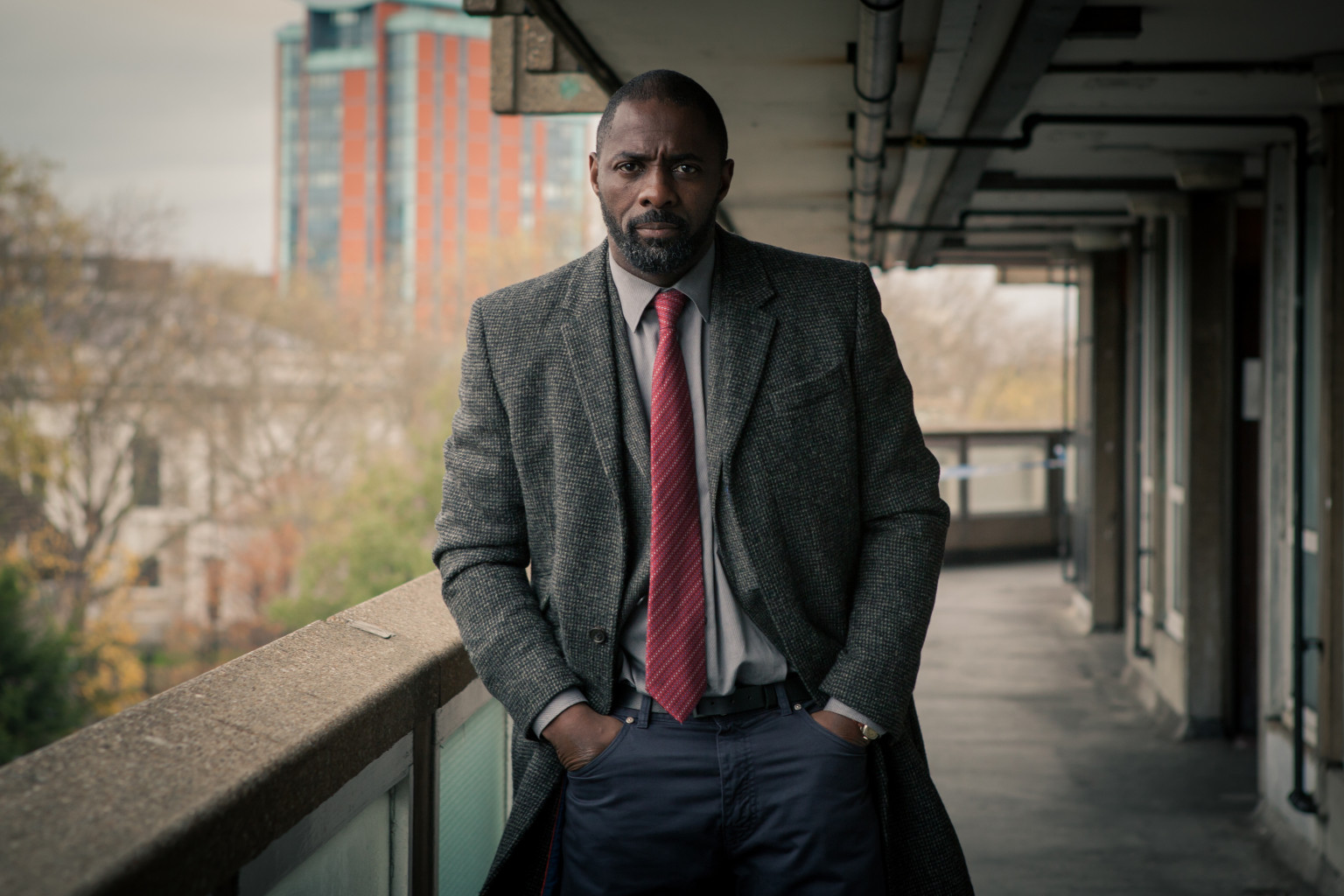
Ok, two words: Idris Elba. This 11-time Emmy-nominated detective series is his show. He leads the action as DCI John Luther, a Serious Crime Unit detective, who is as smart as he is self-destructive. A committed policeman but frequently in over his head and prone to be consumed by the darkness of the criminals he pursues. And, finally, a main role where Elba can legitimately use his thick East London accent, innit.
Creator and writer Neil Cross (Doctor Who) has said to be inspired by Sherlock Holmes and Columbo. While this is a pretty apt description of Luther’s ambivalence, this detective delves into even darker territory than his cultural predecessors. In addition to Elba, Ruth Wilson is one of many amazing actors that grace the show, playing the seductive and completely psycho character Alice. Luther will routinely have you on the edge of your seat screaming “No, why did you do that?”, rooting for the DCI even when he’s taking all the wrong turns. This gritty BBC drama is British television at its nail-biting best.

If you liked Netflix’ Stranger Things gloomy suspense, sit tight because there is a lot more of where that came from in Dark. Here is what they have in common: the aesthetic, great music, and they’re both about the disappearance of a child. Other than that, it is very difficult to compare Dark to anything else I’ve seen before.
This German show is about a town with a long and dark history, which is brought to the forefront of the collective conscious when a child goes missing. The plot twists and turns through decades of history – and that’s as much as I will share without ruining the show for you.
Dark uses beautiful aesthetic, both visually and musically, to be compelling and painfully tension-ridden.
Season two has more bouncing between timelines and more dark and inexplicable events, as now six people are missing.
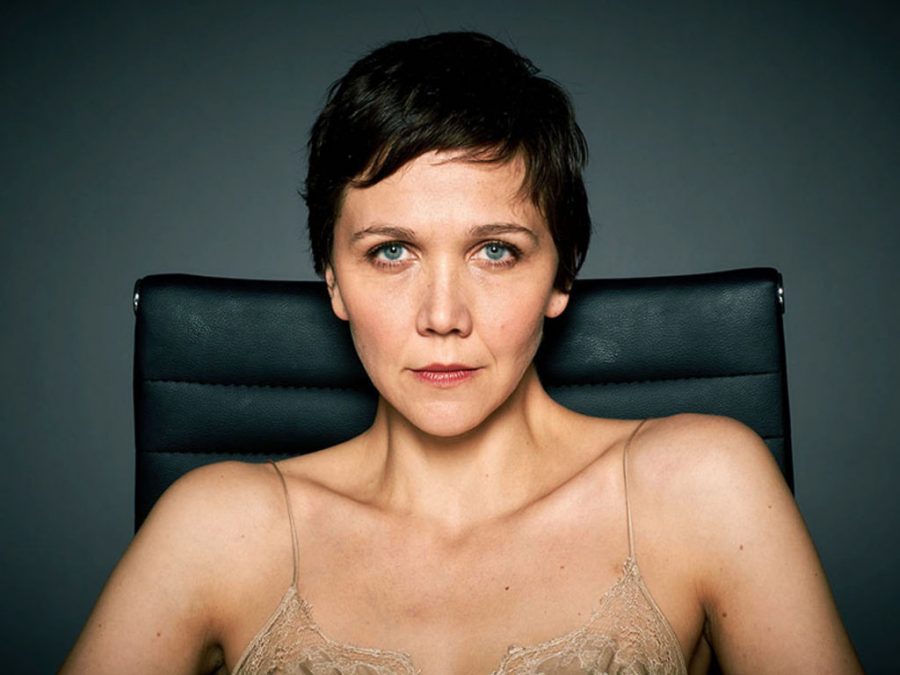
If you watched Homeland, you might recall that the central question was whether the main character was good or bad. In The Honourable Woman, the question is whether anybody is good or bad.
With Maggie Gyllenhaal in the Golden-Globe-winning leading role, this Netflix/BBC production centers in on Nessa Stein, the heiress to a large arms company involved in the Israeli–Palestinian conflict. When her father is assassinated, Stein aims to keep the business alive by diversifying it, essentially moving it away from the war business, and is met with fierce opposition. Her life becomes even more dangerous when a secret from her past comes to haunt her.
Created by the multi-talented actor/writer Hugo Blick, the writing of this British miniseries effortlessly dodges stereotypes and easy answers and builds a balanced complexity that’s never boring. With extremely well-crafted characters, you will find yourself on the edge, never feeling completely safe with any one of them. The perfect ingredients for a top-level political thriller.
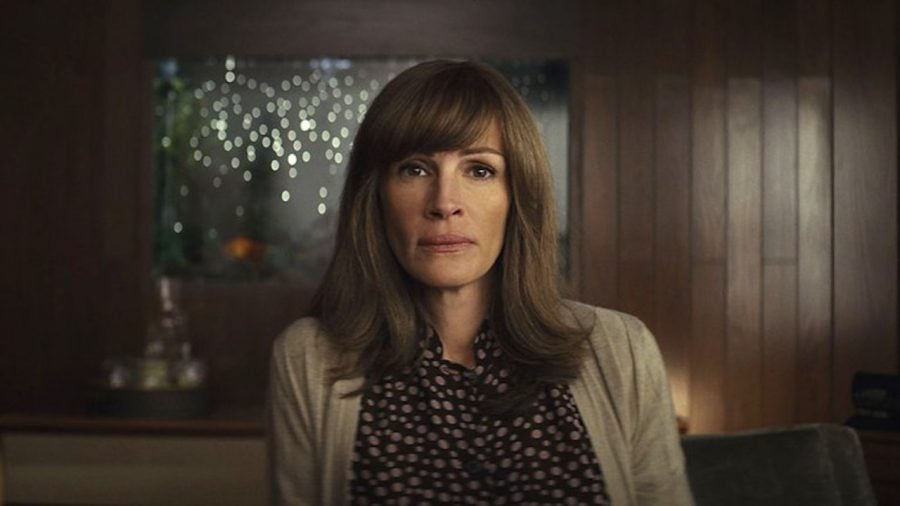
Julia Roberts first small-screen role is that of Heidi Bergman, a woman working as a caseworker at the Homecoming Transitional Support Center, a facility that helps war veterans return to civilian life. Her boss Colin Belfast, superbly played by Bobby Cannavale, is a busy and eager man with questionable motives. Four years on, Bergman no longer works for the mysterious facility, when a visitor forces her to confront what she has been telling herself about her past.
Created by Sam Esmail, who also brought you Mr. Robot, this is mysterious sci-fi at its best. A haunting vibe, heart-stopping cinematography, and a slew of stellar supporting actors like Shea Whigham and Stephan Janes make Homecoming a gripping and breathtaking experience. With each episode clocking in at about 30 minutes, you will frequently be left hungry for more.
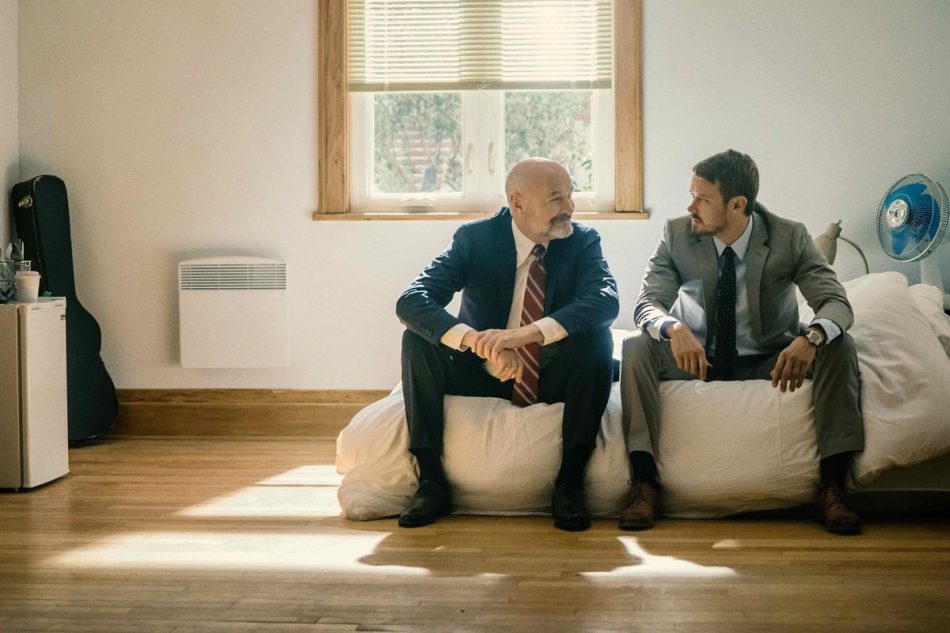
Patriot is about a secret agent meddling with the Iranian elections to stop Iran from developing a nuclear weapon. Ok, so like Homeland? Yes, and also very much no. Its protagonist is not a hardened, larger-than-life secret operative but a singer-songwriter stoner with PTSD.
As far as spy dramas go, Patriot certainly takes a lot of risks. Professional assassin John Tavener (played by Michael Dorman), whose dad (played by the amazing Terry O’Quinn from Lost) is the intelligence chief, is on an undercover mission in Iran. But, he’s not sure he wants to be. On top of that, he faces an incompetent federal bureaucracy, challenges to maintaining his cover, and bouts of mental illness.
Tavener is no hero. Patriot is more a mix between offbeat spy thriller and workplace comedy with a lot of dark humor in between.
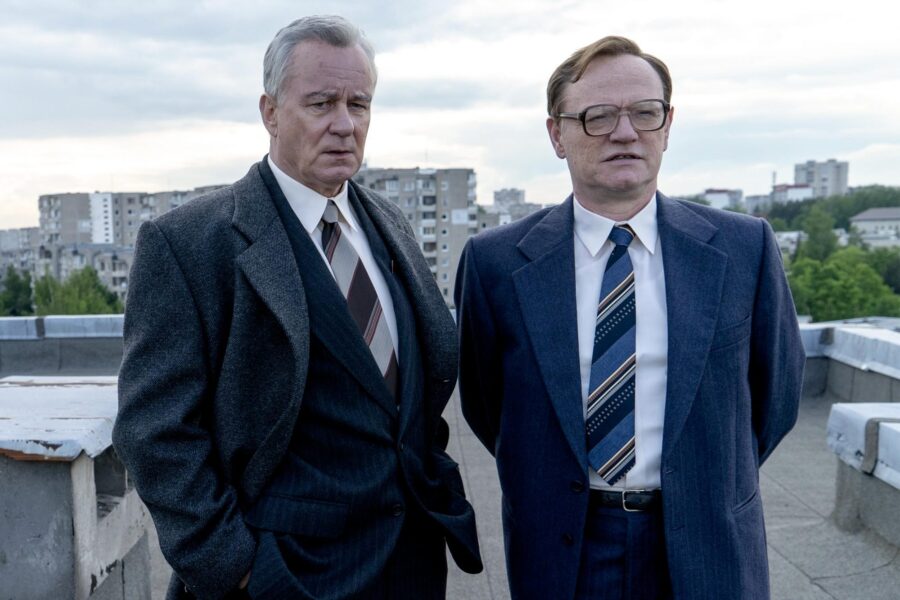
It’s a near-impossible feat to turn something as tragic and devastating as the Chernobyl disaster into a gripping and enlightening tale, but the HBO miniseries does just that. Through insightful storytelling, affecting performances, and sharp dialogue, Chernobyl the show stuns viewers into awareness and, at its best, galvanizes them into action.
It’s a well-crafted five-hour series that does just enough in the way of humanizing a distorted reality, bringing to light the all-too-relevant consequences of power plays and placing the interests of the political elite and national image over real, human lives.
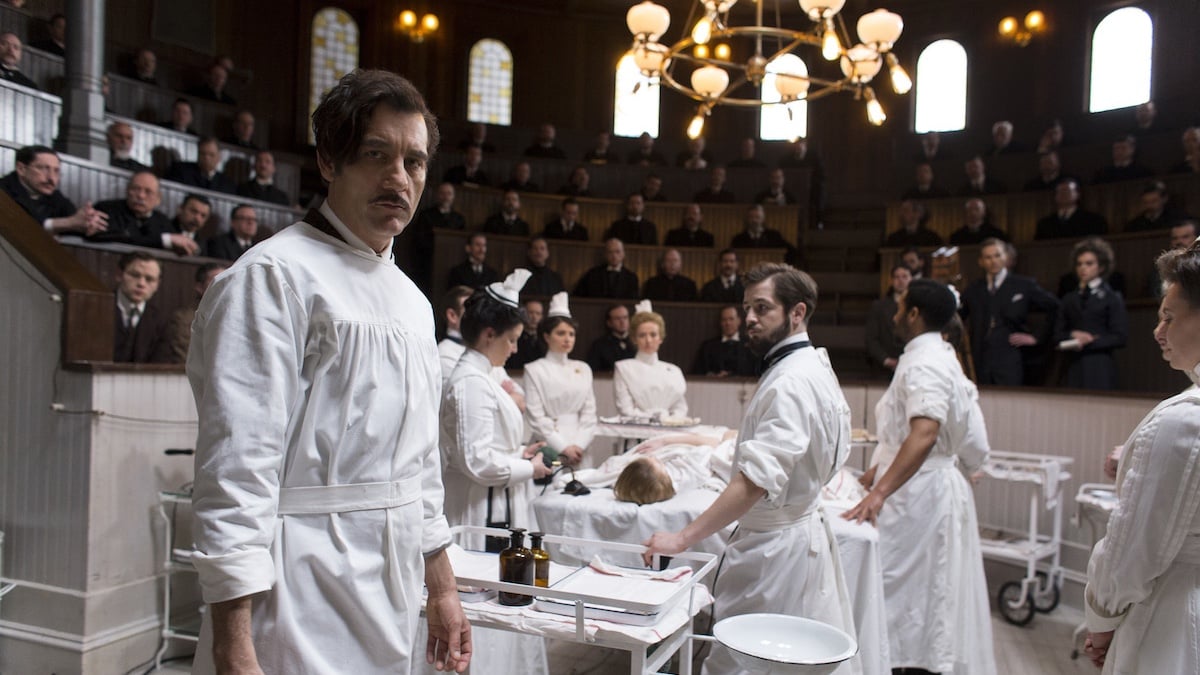
Though it takes place in New York at the turn of the 20th century, The Knick is not your typical historical drama. Set to a pulsating techno score and with a whizzing pace and kinetic camerawork, director-cinematographer-editor Steven Soderbergh injects the show with a potent sense of immediacy so that it never feels like a dusty history lesson. The two-season show is set in the titular Knickerbocker Hospital and tracks the intertwining personal and professional dramas of its benefactors and staff — led by Clive Owen’s arrogant Dr. John Thackeray, who works tirelessly at the bleeding edge of medicine, fuelled by his addiction to the then-medically-permissible cocaine.
Thack’s brilliant innovations and thorny personality take up a good deal of the show, but The Knick’s complex ensemble — from André Holland as the city’s first Black doctor to Cara Seymour as an Irish nun who secretly conducts out-of-hours abortions — are equally compelling. What’s more, the show is just as committed to lifting the events of its period out of the history books and into crackling life. With an unsparing eye, it weaves its way through modern medicine’s gory past and New York’s history with racism (both institutional and otherwise), corruption, immigration, and epidemics (such as that caused by “Typhoid Mary”). If you’re looking for a quaint, comfort period drama, The Knick isn’t it — but if you want to get your adrenaline pumping with a gripping, raw ride through history, your prescription is right here.

As a mystery-driven crime drama, Mare of Easttown treads pretty familiar territory without necessarily digging too deeply into the sociopolitical context it seems to hint at throughout its seven-episode run. But as the miniseries’ focus shifts from the usual procedural elements to more personal drama among the townspeople of Easttown and certain past events they haven’t moved on from, the series gets to evolve as well. The details of who was responsible for the inciting crime are ultimately less important than the conditions in the town’s history that led to the crime in the first place, whether by consequence or by fate. Some reveals here may come off as anticlimactic to some, but the series ultimately has more on its mind that’s definitely worth paying attention to.
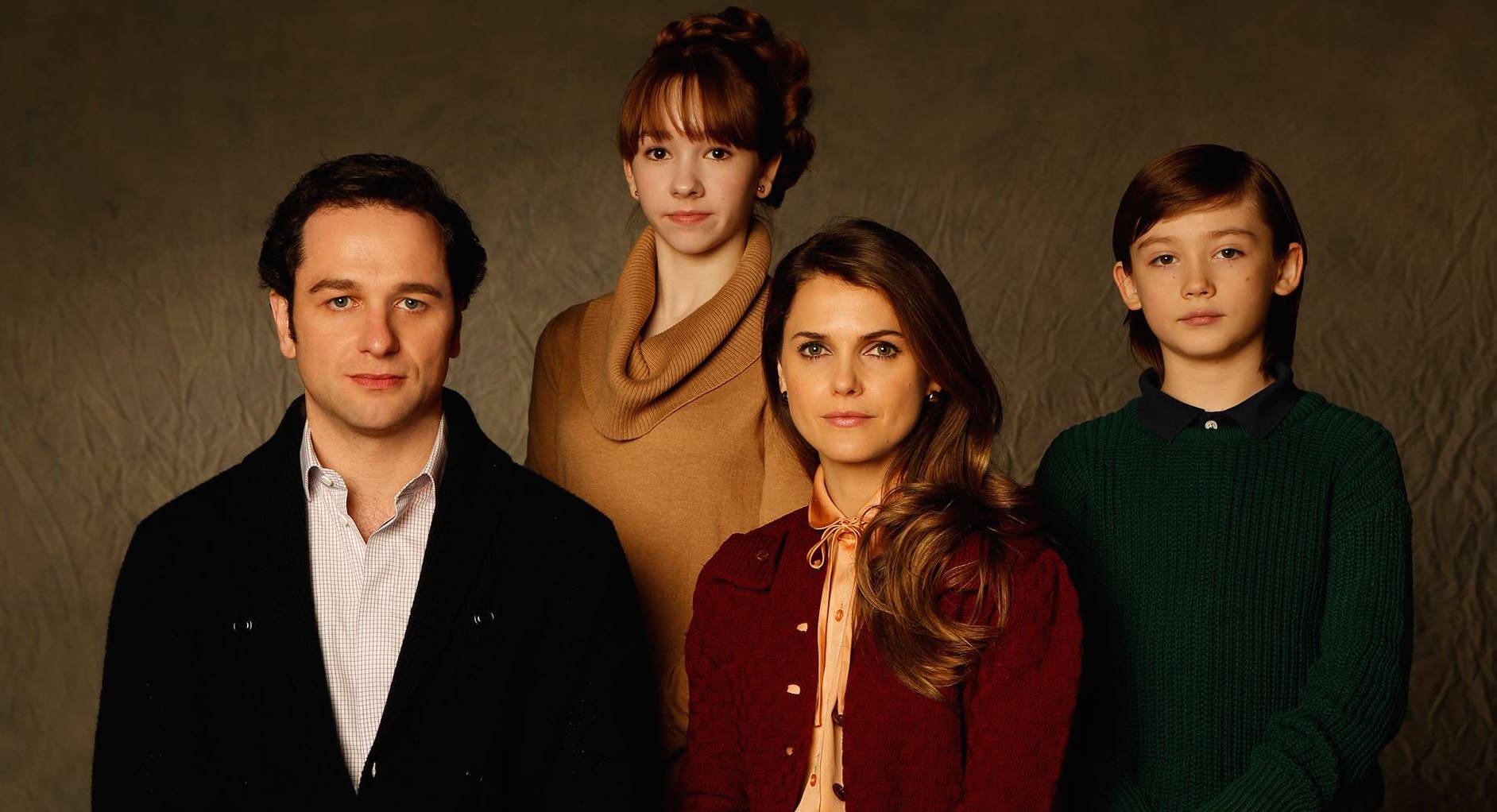
It may have never reached the heights of popularity that other prestige antihero dramas of its time did, but The Americans stayed true to itself for six incredibly consistent seasons. In the vein of “real” spy shows and films, it’s much more deliberately paced, with the bulk of the drama taking place not through shootouts or technical wizardry but through the gradually fraying relationships between characters and their respective beliefs. As the Cold War stretches on for Philip and Elizabeth Jennings (played by real-life couple Matthew Rhys and Keri Russell), the former begins to feel increasingly drained by all the violence he’s committed, wishing for a mundane American life; while the latter maintains a steely dedication to her mission, which also puts her loved ones in harm’s way.
Throughout The Americans’ run, it creates a stunningly detailed tapestry of both Soviets and Americans agents giving themselves over to causes that they still don’t fully understand. But perhaps even more so than a story of loyalty to one’s nation, it becomes a story about the constant demands of marriage and of making connections in a dangerous world despite the risk of betrayal. It never announces its themes loudly, but by the end the weight of these characters’ isolation and disillusionment is unlike anything else you could experience on TV.
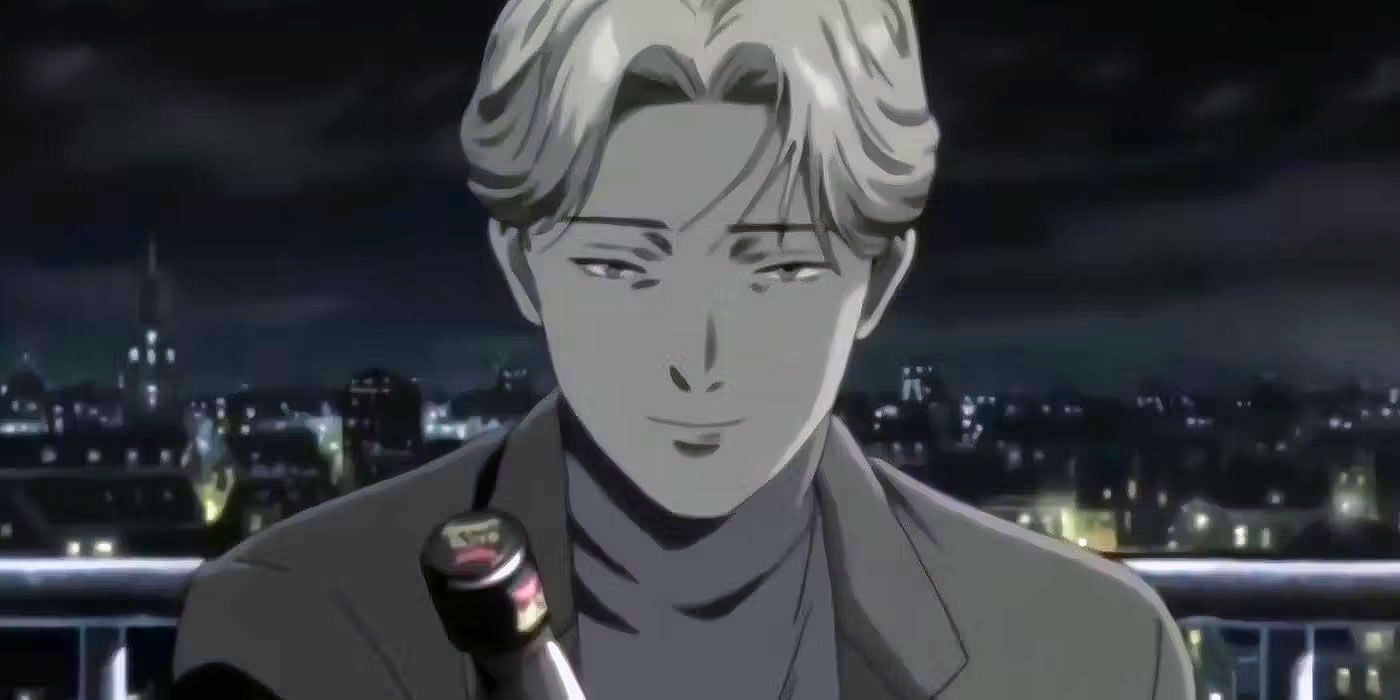
At first glance, Monster doesn’t seem like the typical anime of the 2000s. With its muted colors, realistic action, and Eastern European setting, it seemed like a more subdued series compared to other thrillers. But because it feels so realistic, Monster is one of the most thrilling psychological series that happens to tackle the value of a human life, as the compassionate doctor Kenzo Tenma grapples with the weight of having saved a boy who grows up into a manipulative psychopath. Mangaka Naoki Urasawa and showrunner Masayuki Kojima directly challenges their respective philosophies through excellently paced investigations, well-developed characters, and the thorough examination of the different ways humanity has failed each other, and it’s downright beautiful to see how this anime adapts Urasawa’s complex, sophisticated story so faithfully.
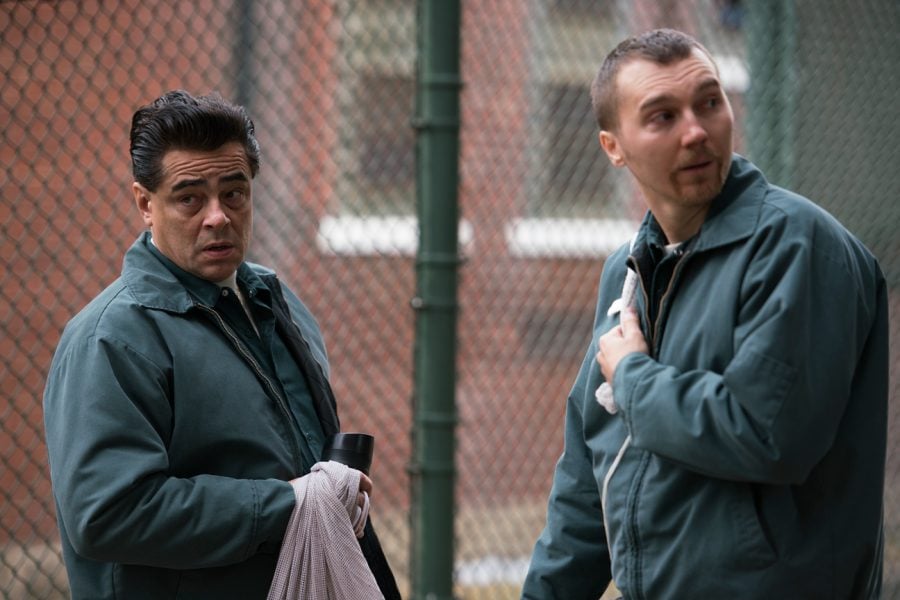
The story is so jaw-dropping that it almost had to be put to film: steadily sawing through pipes and cutting through walls, two convicted murderers managed to break out of a maximum-security prison in upstate New York in 2015. The elegant and realistic dramatization was released by Showtime in 2018 and directed by none other than Ben Stiller in what marks his TV directorial debut.
The protagonists of this unlikely feat included the shrewd, boss-type felon Richard Matt (Benicio del Toro) and the much younger, excitable David Sweat (Paul Dano). You will hardly recognize Patricia Arquette in her role as Joyce ‘Tilly’ Mitchell, a married prison employee overseeing the sewing workshop, who supported and had sexual relations with both men. She rightly received a slew of awards, including a Golden Globe in 2019, for her stunning transformation and brilliant performance.
While the pacing of this somber thriller might be a bit too slow for some, the stellar performances of the main cast are enough to keep you on the edge of your chair. It’s a cinematic TV rendition of an unbelievable story and an engrossing view inside the life and minds of disenfranchised Americans.
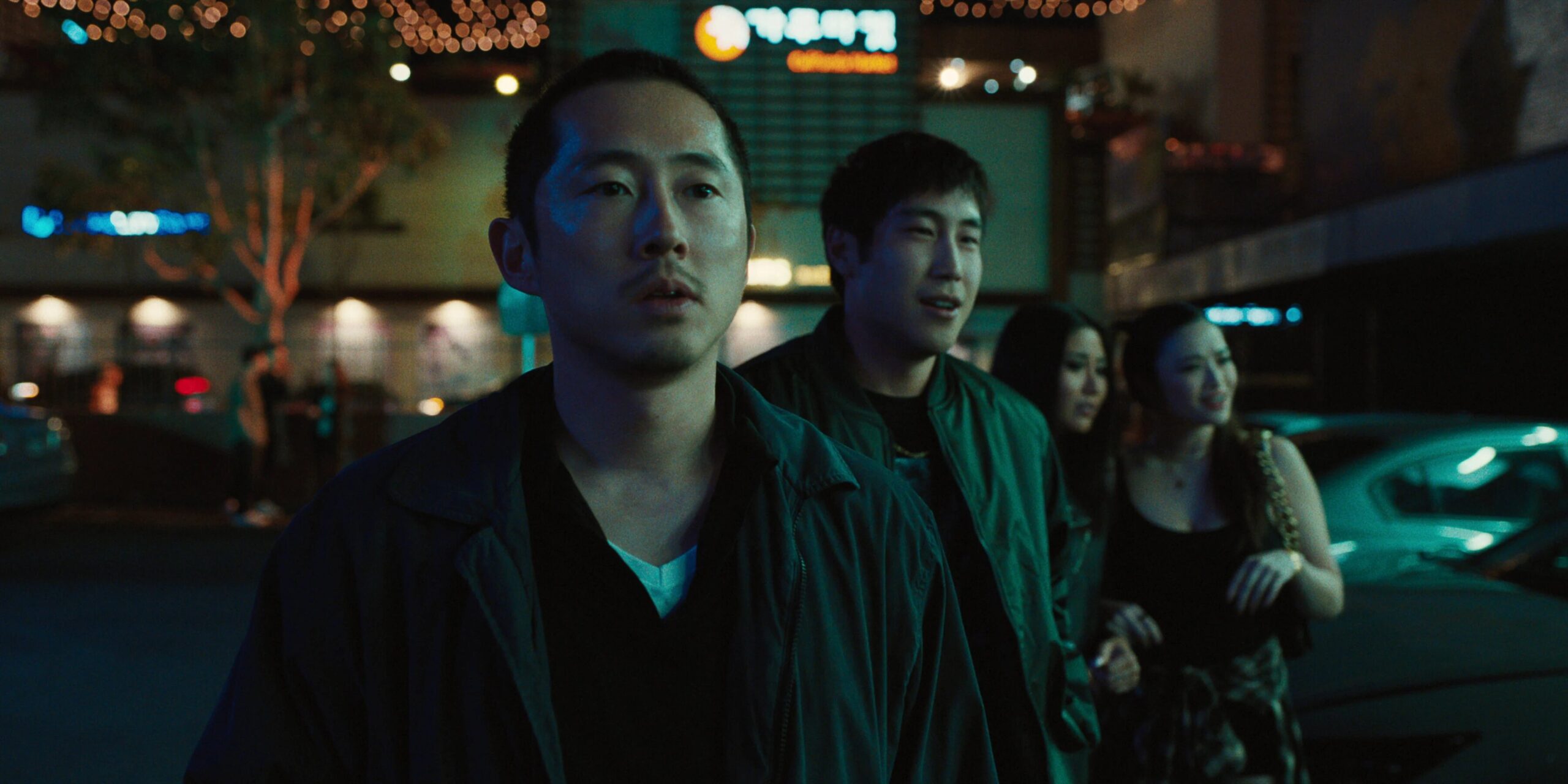
A parking lot run-in wouldn’t normally warrant anything more than an angry rebuke, but for Danny and Amy (Steven Yeun and Ali Wong, respectively), it’s the final straw that pushes them over the edge and into the domain of unfiltered rage. Years of forced optimism and unreciprocated niceness have led them to this unforgiving point, and instead of going back to how things were, they burry themselves deeper into the ground with each new act of revenge proving more sinister than the last.
Beef could’ve easily been a comical show anchored on silly hi-jinks. Instead, it’s a searing look at anger and repression in modern-day America. Danny and Amy are on opposite ends of the class spectrum, but both are riddled with unending malaise and self-hatred, parts of which are informed by their race, gender, and status as second-generation immigrants in the country. It’s their chase for the elusive American Dream, and not actually each other, that entangles them in a web of deceit and danger.
Juicy with a thrilling aftertaste, each episode of Beef will leave you enthralled, enraged, and ever-hungry for more.
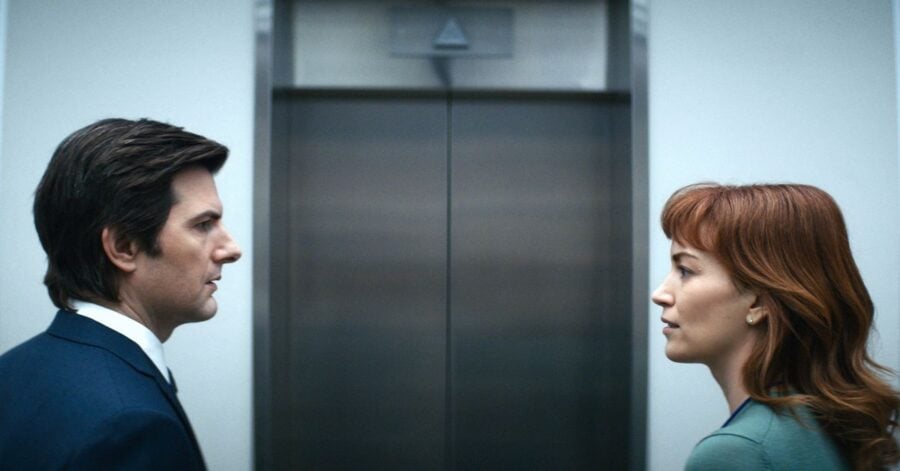
In Lumon, a company that resembles the increasingly intrusive oligarchs of Big Tech, Mark (Adam Scott) and his colleagues undergo a procedure that allows them to separate their work memories from their non-work memories. It sounds like a dream: the perfect work-life balance. But things get complicated when one colleague mysteriously leaves and is replaced by confused new hire, Helly (Britt Lower). Mark and Helly dig into shocking truths about what they really do, and for whom.
Just like the endless halls of Lumon, Severance is filled with twists and turns, many of which are impossible to see coming. Slow, smart, and sneaked with a dystopian eerieness that doesn’t feel all that far off, Severance is sure to leave you wary of corporate slavishness, if you aren’t already.


